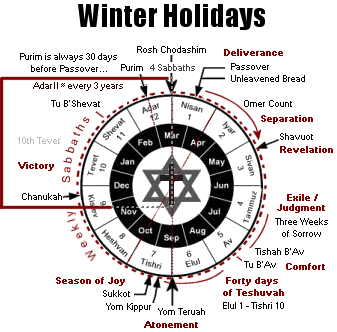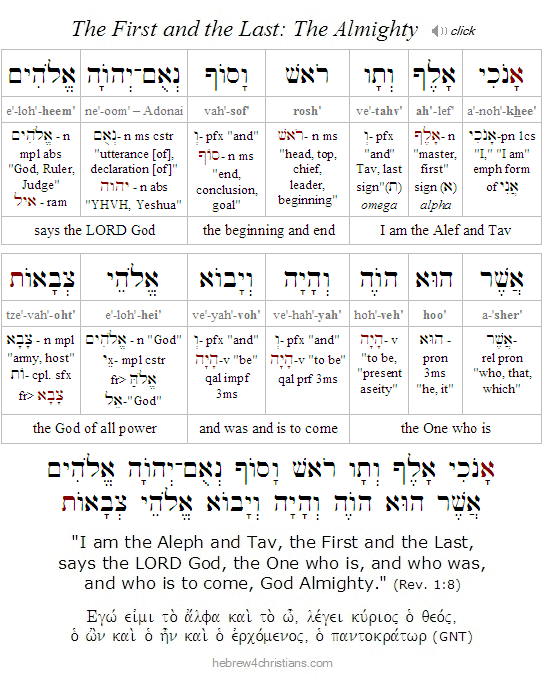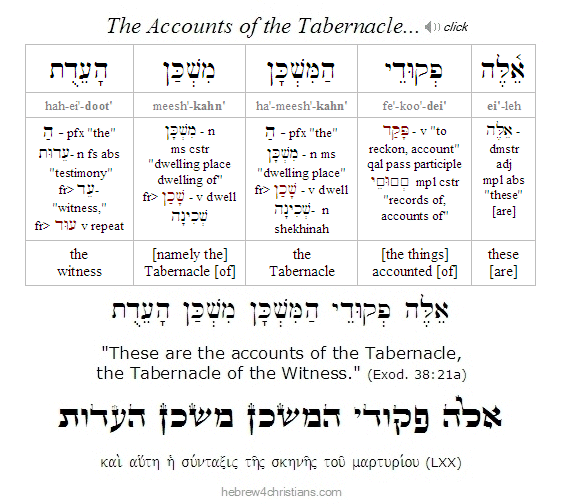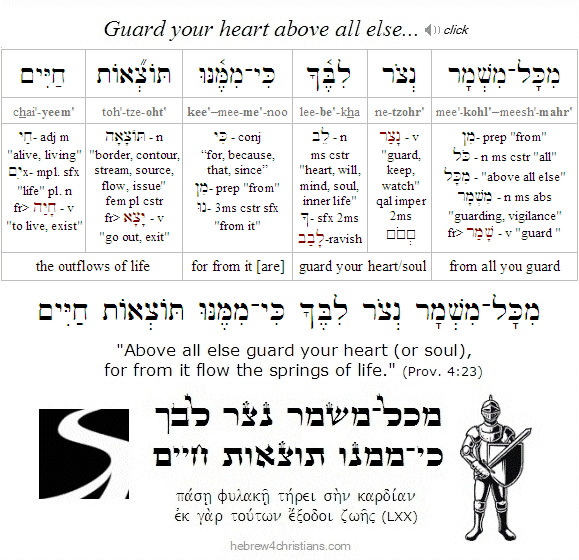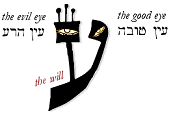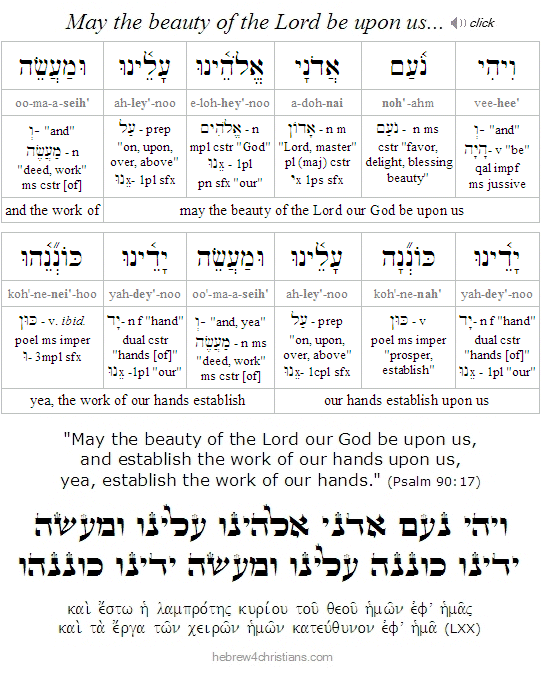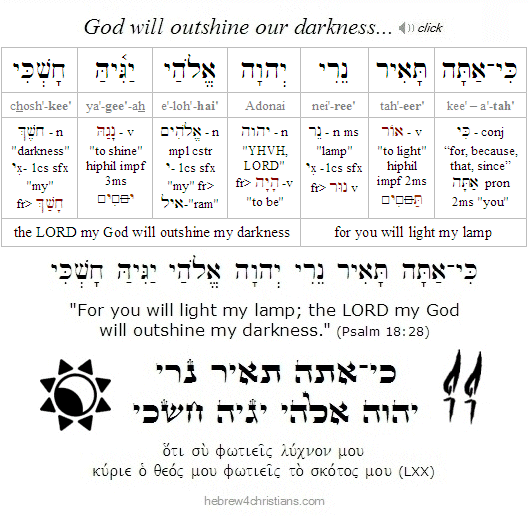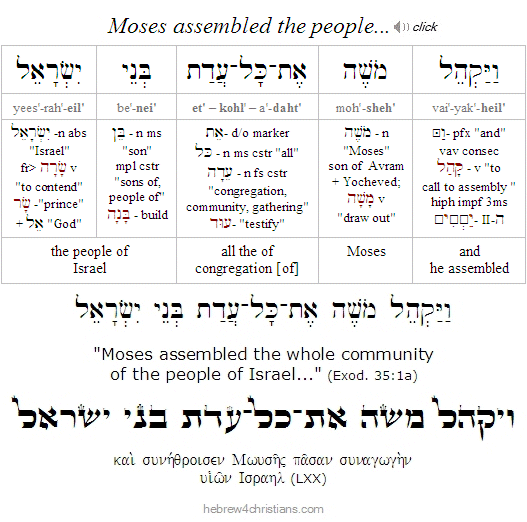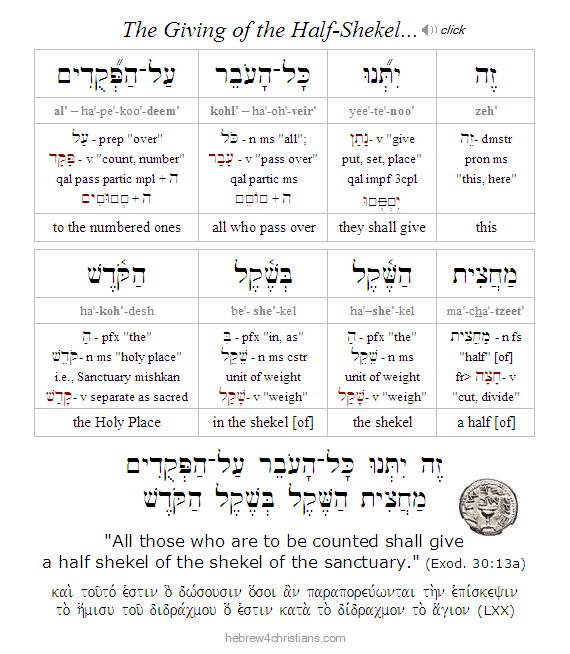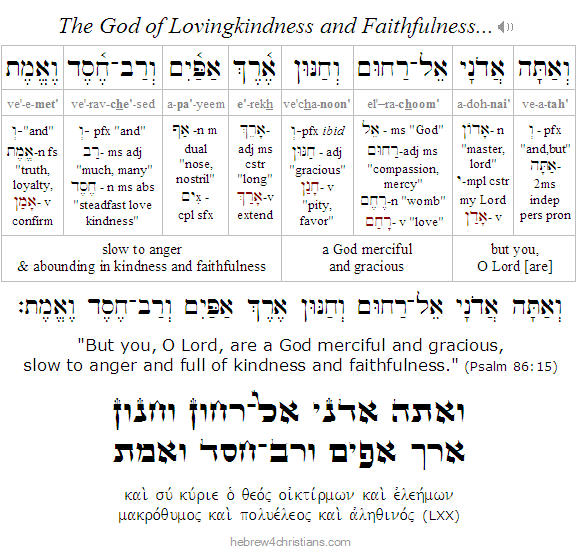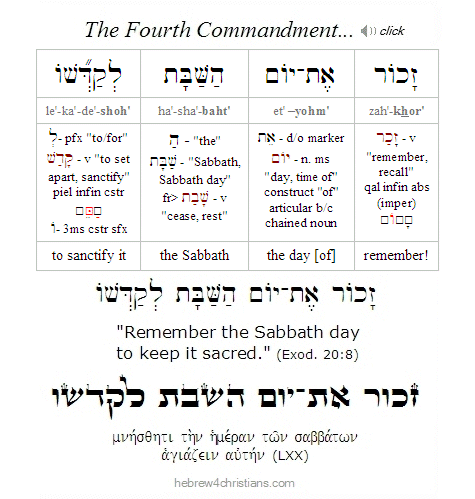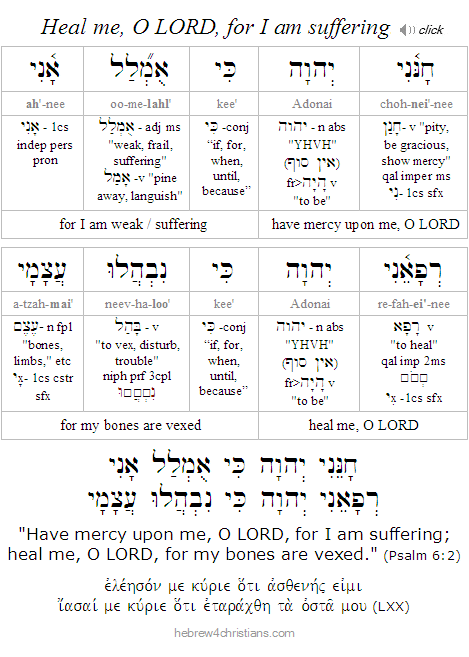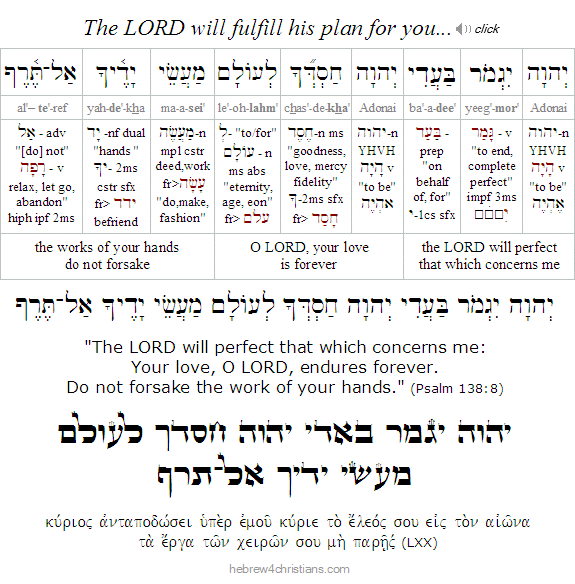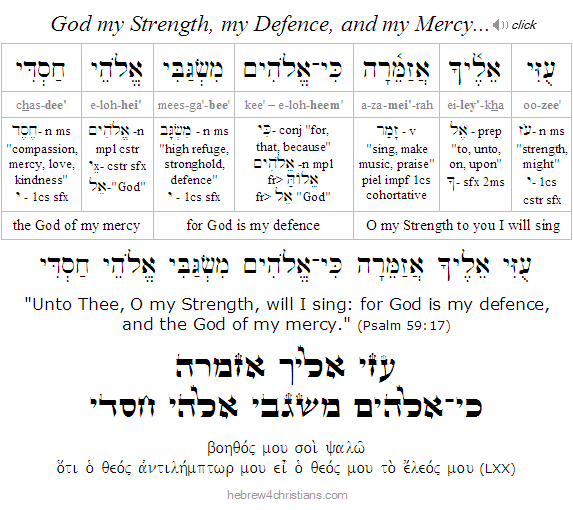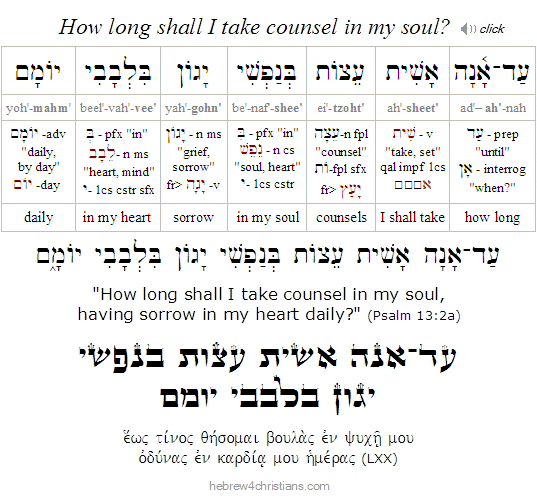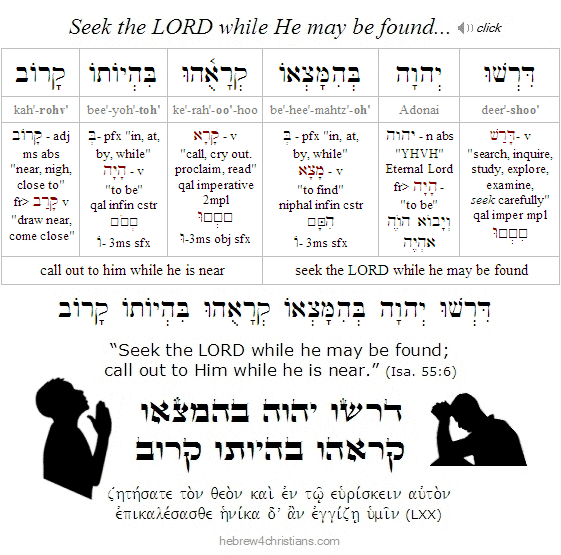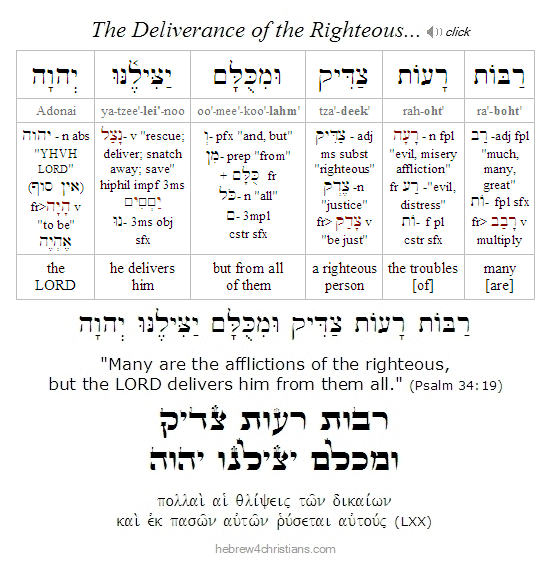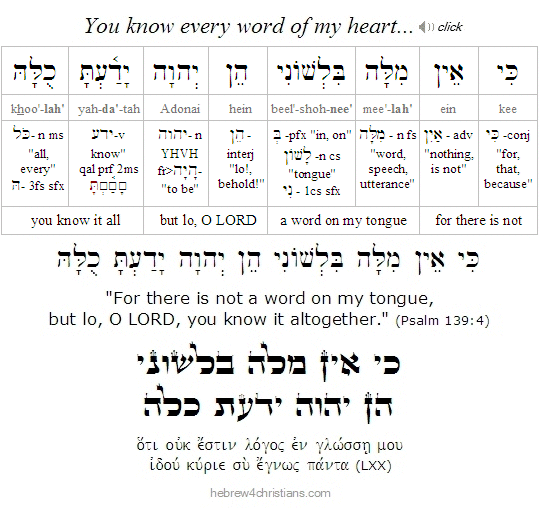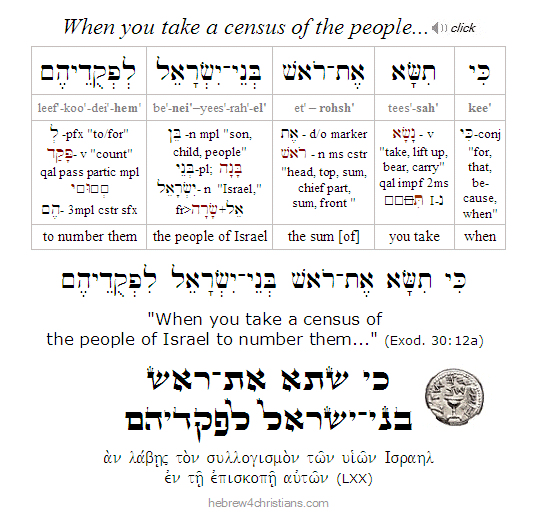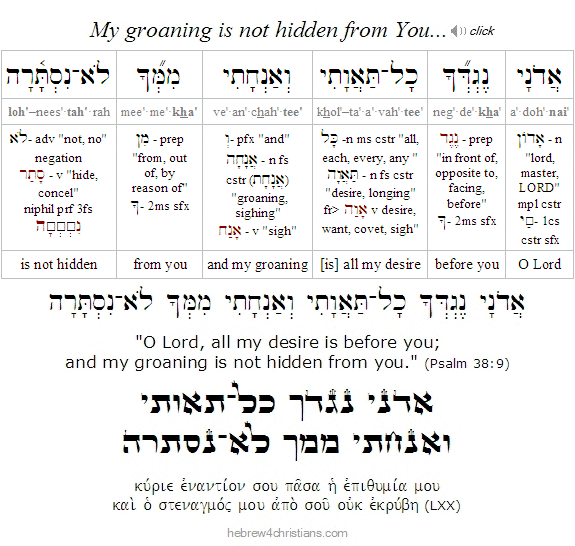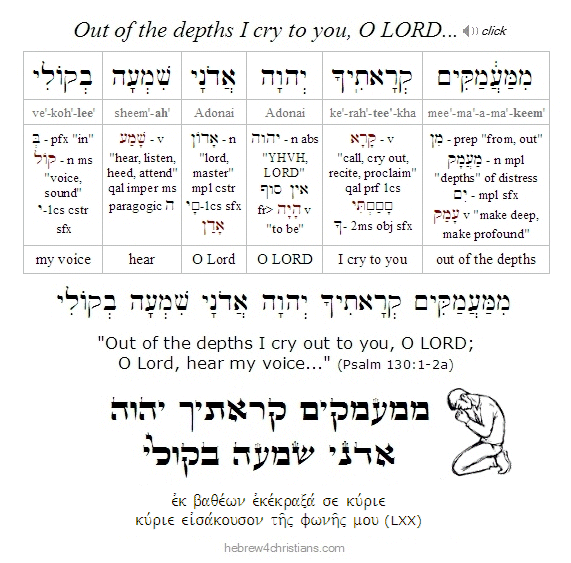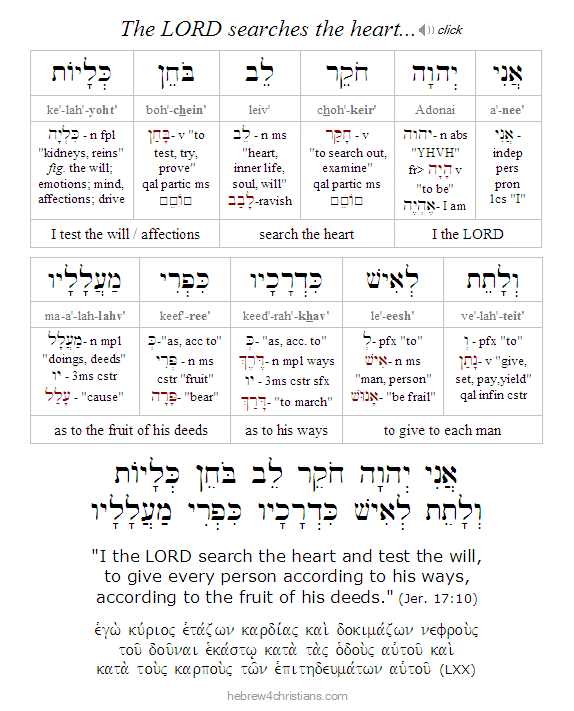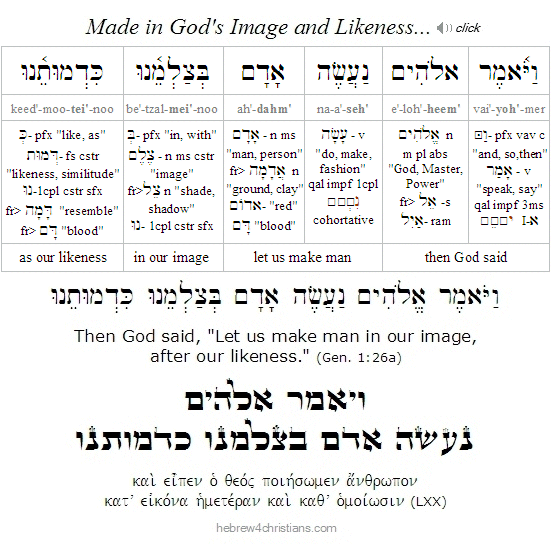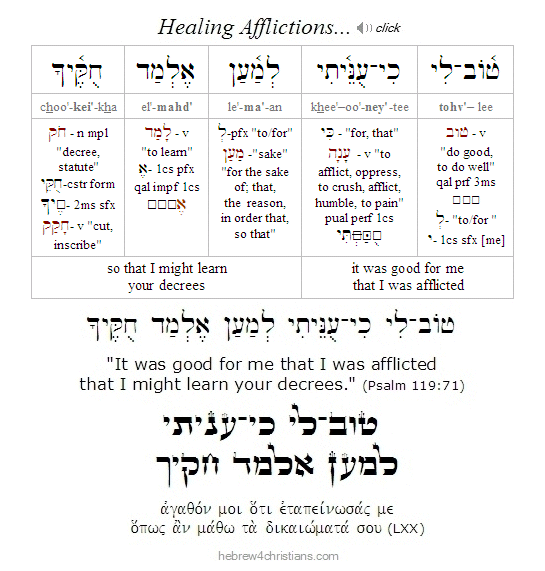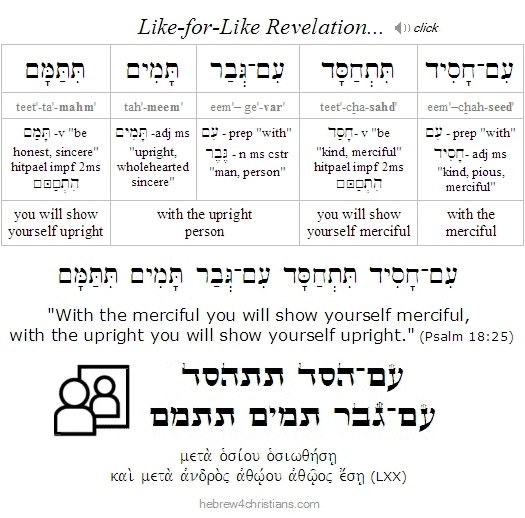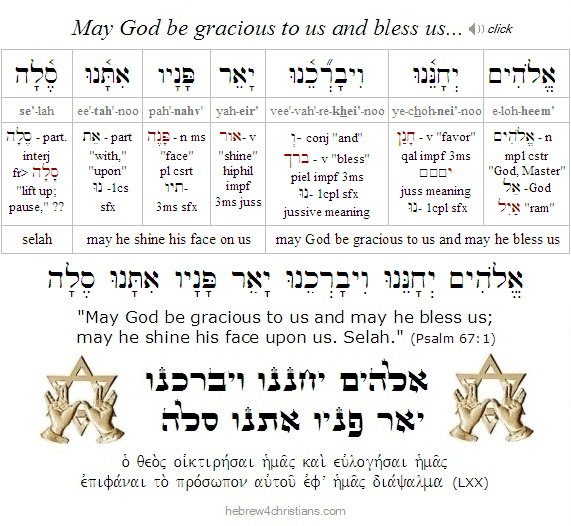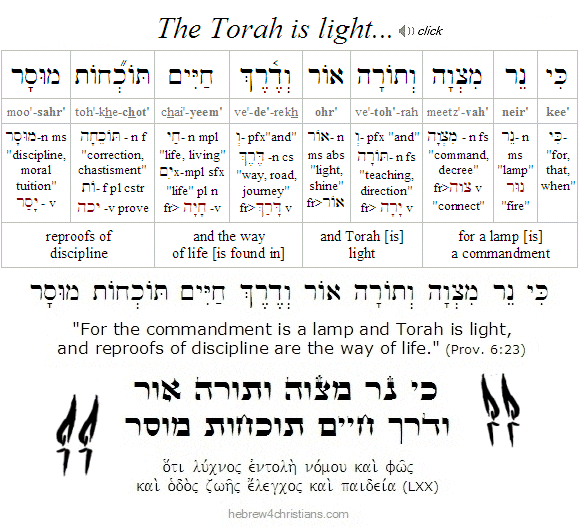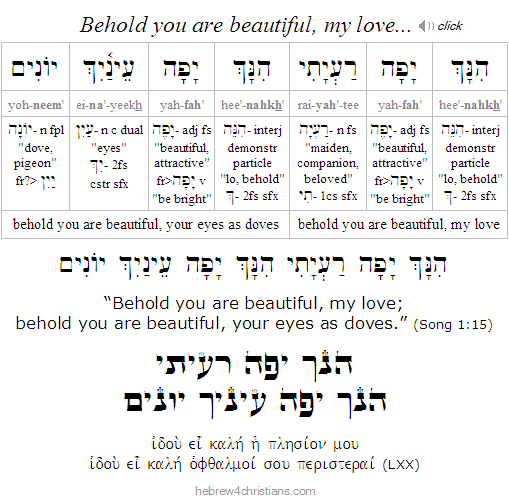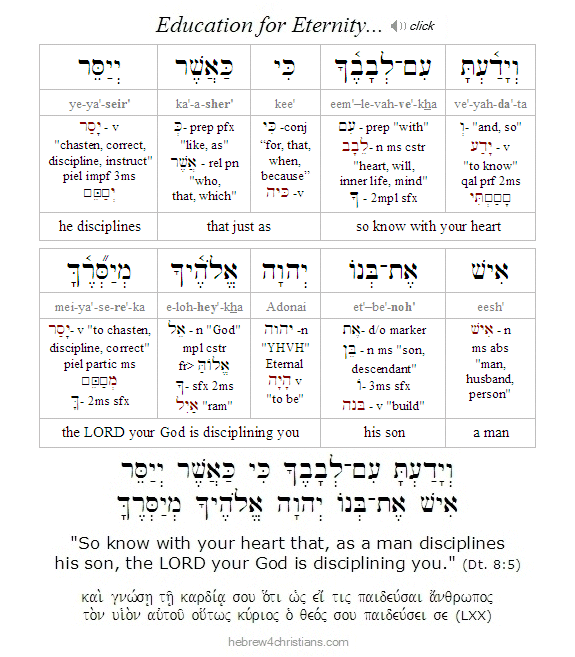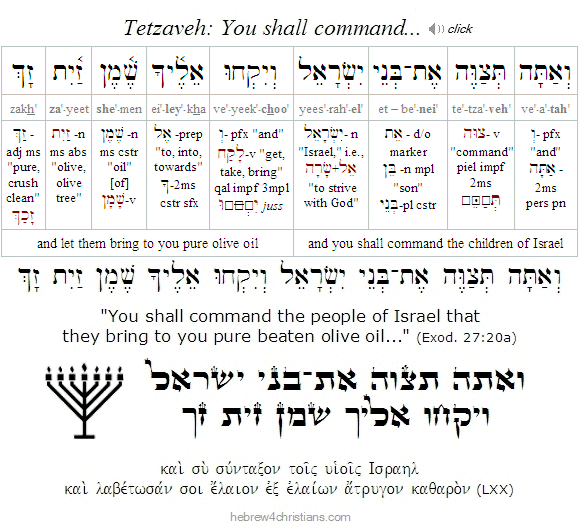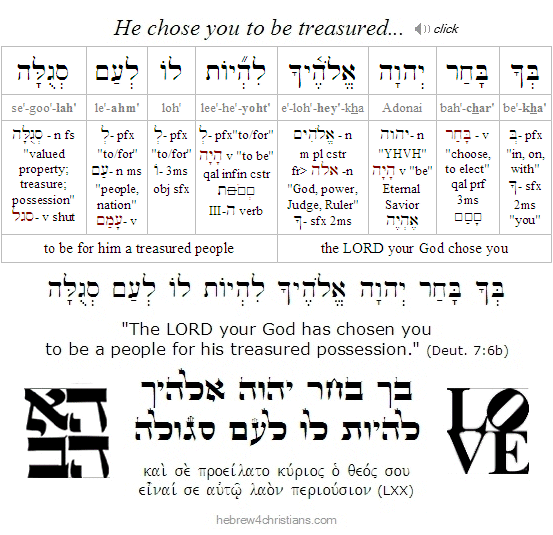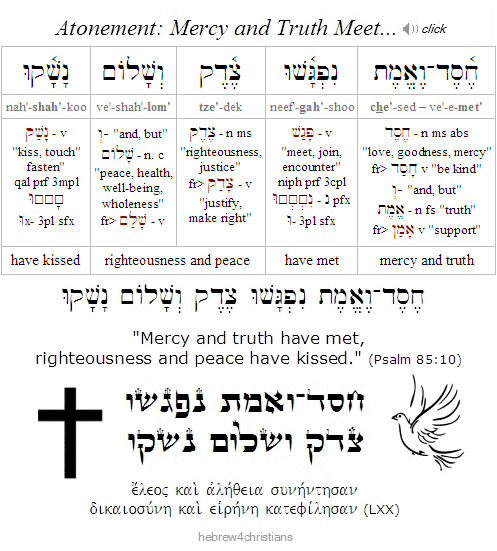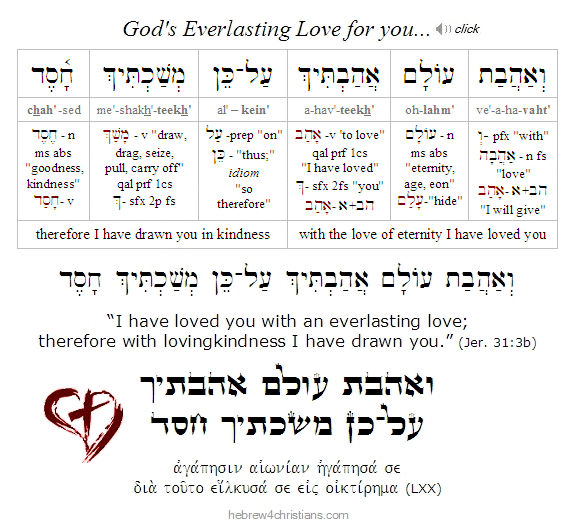|
Jewish Holiday Calendar
For February 2022 site updates, please scroll past this entry....
The winter holidays (חגי החורף) remember special times when God acted on behalf of His people so that they would triumph over their enemies, and therefore they prophetically picture the final victory in the world to come.
The Winter Holidays:
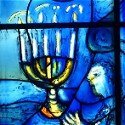
Note that in accordance with tradition, the following holiday dates begin at sundown:
- Month of Tevet (Fri., Dec. 3rd [eve] - Sun. Jan. 2nd [day])
- Month of Shevat (Sun. Jan. 2nd [eve] - Mon. Jan. 31st [day])
- Month of Adar I (Mon. Jan. 31st [eve]) - Wed. March 2nd [day])
- Month of Adar II (Wed. March 2nd [eve]) - Fri. April 1st [day])
 |
 |
Note: Some calendars will list the first day of a holiday without indicating that the holiday actually begins sundown the night before. For more information see the Calendar pages...
February 2022 Updates
Note: If any page content appears to be missing, please refresh the page...
The Beginning and End...

02.28.22 (I Adar 27, 5782) The concluding portion of the Book of Exodus (i.e., Pekudei) provides details about the construction of the "Tabernacle" (i.e., mishkan: מִשְׁכָּן) and its furnishings as well as the special clothing of the priests. At the very end of the portion we read, וַיְכַל משֶׁה אֶת־הַמְּלָאכָה / "and Moses finished all the work" (Exod. 40:33), a phrase that has the same gematria (numeric value) as bereshit (בְּרֵאשִׁית, "in the beginning"), the very first word of the Torah (Gen. 1:1). This suggests that the very creation of the universe was for the sake of the building of the Altar of God, and by extension, for the sake of the sacrificial love of God to be demonstrated to all of creation....
The Talmud states, "All the world was created for the Messiah" (Sanhedrin 98b) and indeed, Yeshua is called "the Lamb slain from the foundation of the world" in the New Testament (Rev. 13:8; 1 Pet. 1:18-20; Eph. 1:4; 2 Tim. 1:9). "All things were created by Him (i.e., Yeshua), and for Him" and in Him all things consist (συνεστηκεν, lit. "stick together") (Col. 1:16-17). Creation therefore begins and ends with the redemptive love of God as manifested in the Person of Yeshua our Moshia, the great Lamb of God... He is the Center of Creation - the Aleph and Tav - the Beginning and the End (Isa. 44:6; Rev. 1:17).
Some of the Jewish sages said that "the seal of God is truth," since the final letters of the three words that conclude the account of creation -- bara Elohim la'asot ("God created to do" [Gen. 2:3]) -- spell the word for truth (i.e., emet: אֱמֶת):
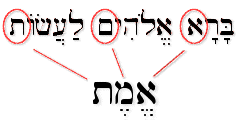 |
The idea that God created the world "to do" implies that He had finished all His work of creation (and redemption) after the sixth day (Heb. 4:3), which is yet another way of saying that Yeshua is the Lamb slain from the foundation of the world. Salvation is not an afterthought or "plan B" of God's purpose for creation. "Before Abraham was, I AM." Our LORD Yeshua always is the Way, and the Truth, and the Life for us (John 14:6).
Hebrew Lesson
Rev. 1:8 Hebrew reading:
Glory Fills the Temple
Parashat Pekudei...
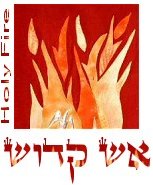
[ "There is a God-shaped hole in the life of every man..." - Pascal ]
02.27.22 (I Adar 26, 5782) Shavuah tov, talmidim, and thank God for another opportunity to study Torah and the ways of the Lord... Our Torah reading for this week is called parashat Pekudei, which is the concluding portion of the great Book of Exodus (i.e., ספר שמות). It begins with Moses' accounting of (פקודי) all the materials that were donated for the construction of the Mishkan (i.e., Tabernacle). After Moses recorded the inventory of the building materials and furnishings, he carefully checked the special priestly garments. After all the work was confirmed to be in complete accordance with the LORD's instructions, Moses blessed the people. The LORD then commanded Moses to assemble the Mishkan on "the first month in the second year [from the date of the Exodus], on the first day of the month" (i.e., on Nisan 1, or Rosh Chodashim, Exod. 40:17).
Once the Tabernacle was completed and all its vessels were accounted for and inspected, Moses anointed all its components with the sacred anointing oil, called shemen ha-mishchah (note that the word "mishchah" (מִשְׁחָה) comes from the same root as "Messiah" (מָשִׁיחַ), indicating that the Mishkan (i.e., Tabernacle) would foreshadow God's plan of redemption given in Yeshua). Moses then formally initiated Aaron and his four sons into the priesthood, marking their hands and feet with sacrificial blood and "waving them" before the Lord to picture resurrection. God's Presence - manifest as the Shekhinah Cloud of Glory – then filled the Holy of Holies in the Tent of Meeting.
At the end of the portion we read, וַיְכַל משֶׁה אֶת־הַמְּלָאכָה / "Moses finished all the work" (Exod. 40:33), a phrase that has the same gematria (numeric value) as bereshit (בְּרֵאשִׁית, "in the beginning"), the very first word of the Torah (Gen. 1:1). This suggests that the creation of the universe was for the sake of the building of the Tabernacle, and by extension, for the sake of the sacrificial love of God to be demonstrated to all of creation. The Talmud states, "All the world was created for the Messiah" (Sanhedrin 98b) and indeed, Yeshua is called "the Lamb slain from the foundation of the world" in the New Testament (Rev. 13:8; 1 Pet. 1:18-20; Eph. 1:4; 2 Tim. 1:9).
The Presence of the Glory of God that descended from Sinai upon the newly dedicated Mishkan represented a climactic moment for the fledgling nation, since the Sin of the Golden Calf had jeopardized whether the God would indeed dwell within the midst of the camp of Israel... Recall that it was only after Moses had returned from Sinai bearing the second set of Tablets (on Yom Kippur) that the glow of the LORD's redeeming love radiated from his face, and new hope was given to Israel (prefiguring the New Covenant). The King of Glory would accompany the people from Sinai to the Promised Land! (The narrative continues in the Book of Numbers, beginning exactly one month after the Mishkan was assembled.)
Comfort in Affliction...
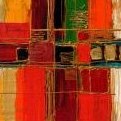
[ "The truth, even though I cannot feel it right now, is that I am the chosen child of God, precious in God's eyes, called the Beloved from all eternity and held safe in an everlasting embrace... We must dare to opt consciously for our chosenness and not allow our emotions, feelings, or passions to seduce us into self-rejection."- Henri Nouwen ]
02.25.22 (I Adar 24, 5782) One of the ultimate tests of faith is to refuse to succumb to despair in the face of personal suffering. For those who struggle with the loss of a loved one, or some terminal disease, the test of faith calls for the heart to look beyond the realm of appearance, where the "outward man" perishes, to the realm of ultimate healing, where the "inward man" is finally liberated from the ravages of sin and death.
Our present condition is one of a "divided house" that cannot stand. The old nature is earthbound, a creature of the dust of the earth, whereas our new nature comes from the breath of life imparted through faith in Jesus. In His infinite wisdom, God has imparted the treasure of hope in "jars of clay" so we can understand that our sufficiency comes from Him alone (Psalm 119:25; 2 Cor. 4:7).
Our natural tendency is to seek comfort and to flee from pain. We fret over the insecurities of our world and instinctively seek shelter from threats we perceive. Yet the world itself is subject to vanity (Rom. 8:20); it is pain-riddled and constrained to ongoing bereavement: "All flesh is grass, and all its beauty is like the flower of the field" (Isa. 40:6). As Job said, "Life is but a breath" (Job 7:7).
God often uses suffering to do a "deep" work of change within us. Indeed, the tribulations of life are described using the image of the "squeezing of grapes," which yield something far more precious than any kind of this-worldly happiness. "For our light affliction, which is but for a moment, prepares us for a far more exceeding and eternal weight of glory" (2 Cor. 4:17).
Of course there are dark moments where pain can almost blind us to all hope. For those who know it, there are long hours where there seems no respite or consolation from affliction. But genuine faith affirms with Job that, "though He slay me, yet will I trust in Him" (Job 13:15). This is comfort we have in affliction: God's promise revives our hearts to say, "I know that my Redeemer lives, and at the last he will stand upon the earth" (Job 19:25). Even in the "shadow of the valley of death" (i.e., this moribund and broken world), the LORD is with us and comforts us with His Presence (Psalm 23:4).
Hebrew Lesson
Psalm 119:50 Hebrew reading:
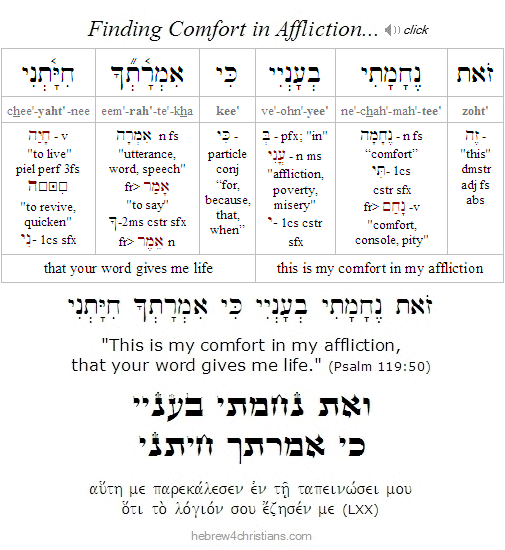 |
Called by Name...

02.25.22 (I Adar 24, 5782) The Spirit speaks to the listening heart of faith: "Fear not, for I have redeemed you; I have called you by name, and you are mine" (Isa. 43:1). God has personally redeemed you, friend; He calls you by name, and you belong to Him. The Lord loves you with an everlasting love and draws you close (Jer. 31:3). He will never leave nor forsake you, even if you might face waters that seem to overwhelm or fires that seem to devour (Isa. 43:2). The will of your Heavenly Father will never lead you to a place where his love will not there sustain you.
Worry is a place of exile and pain. We are commanded, al tirah, "fear not," because fear was behind the original sin in the garden, just as mistrust lies behind our own hiding and self-imposed exile from God... Since sin expresses a heart of fear (Rom. 14:23), the way of healing is to courageously turn back to God, despite our shameful past. We can trust God's love for us because of the cross of Yeshua our Lord. If we haven't received God's love and acceptance, we are still enslaved to fear and abide in a state of exile. The love of God casts out our fear because it casts out all our sins (1 John 4:18).
It is written, "God has not given us the spirit of fear, but of power and of love, and of a "sound mind" (2 Tim. 1:7). The Greek word for "sound mind" means made "safe" because of the restraining influence of the Spirit of God... If you sense fearful oppression within your heart, turn to the Lord and offer him focused praise. Lift up your soul to him and thank him for your trouble. This has the double benefit of confessing your trust in God's care, as well as vexing the enemy of your soul. Come boldly to the throne of grace to find your help (Heb. 4:16); cast all your anxiety on him, for he cares for you (1 Pet. 5:7).
The Name of the LORD (יהוה) means "Presence" and "Love" (Exod. 3:14; 34:6-7). Yeshua said, "I go to prepare a place for you," which means that his presence and love are waiting for you in whatever lies ahead (Rom. 8:35-39). To worry is to "practice the absence" of God instead of to practice His Presence... Trust the word of the Holy Spirit: "For I know the plans I have for you, declares the LORD, plans for healing peace and not for evil, to give you a future and a hope (Jer. 29:11).
Take comfort that your Heavenly Father sees when the sparrow falls; he arrays the flower in its hidden valley; and he calls each star by name. More importantly, the Lord sees you and understands your struggle with fear... Come to him with your needy heart and trust him to deliver you from the burdens of your soul (Matt. 11:28).
Hebrew Lesson
Isaiah 43:1b Hebrew reading:
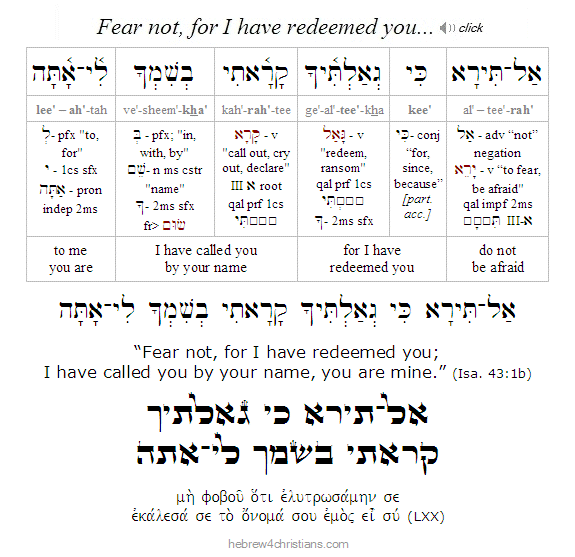 |
Eyes of the Heart...

02.25.22 (I Adar 24, 5782) Repentance (or "teshvuah") means learning to see from a radically new perspective, a perspective of hope, of blessing, of truth... As we change our focus, we begin to see that "everything is new," and our direction begins to change (2 Cor. 5:17). Perception is a matter of heart, and therefore we choose to see and hear what we want to see and hear (Isa. 6:10; John 12:40). If we do not see God, it may be that we turned away from his presence (Rom. 1:18-22). Our desires filter what we see and how we focus; we interpret reality by an act of will, not by merely seeing with the physical eyes. We believe in order to see, not the other way around, and what we see is therefore disclosed by faith (Matt. 9:29). Often we do not see things as they are, but how we want to see them. We see as we are in our hearts: "As a man thinks in his heart, so is he" (Prov. 23:7).
So how you choose to see defines the world you will inhabit (Prov. 4:23). The "eyes follow the heart," and therefore seeing is a matter of inner attitude (Matt. 6:22-23). Yeshua said that our problem comes from within: "Out of the heart proceed evil thoughts," and these thoughts eventually show up in our actions (Matt. 15:19; Prov. 11:27). The Spirit of God indeed creates a new heart and spirit within us (Ezek. 36:26), but the "eyes of the heart" (ὀφθαλμοὺς τῆς καρδίας) must be enlightened by constantly turning to God (Eph. 1:18). We "set" the LORD always before us. We need the "good eye" of the Spirit to impart purity of heart, thereby enabling us to see the Presence of God all around us (Matt. 5:8; Isa 6:3).
We are told: "Seek and you will find" (Luke 11:4), which implies that you will find whatever it is that you are seeking. Look for the good and the good will be disclosed; look for evil, and you will discover it, too (Prov. 11:27). The optimist believes this is the best of all possible worlds; the pessimist is afraid the optimist is right. Both look at the same world; both have two radically different visions...
We can either put all our energy into not falling, or we can focus on the walk before us... Changing your vision means no longer looking at the hell of your past, but looking to the promise of a glorious future. Focus on God and his great love for you; do not return to the house of bondage, the prison house of fear. Keep the "eyes of your heart" on Yeshua who is the Light, the Compassion, and the Healing touch of the LORD our God. May you hear him say, "Blessed are your eyes, for they see, and your ears, for they hear (Matt. 13:16).
A prayer...
"Dear LORD God, help me change my thinking; correct my faulty vision, heal my distorted focus... Open my eyes to behold your beauty, your truth, and your glory in my life. Help me seek your love and goodness -- and to find it, even here, in this passing world of shadows. Do not let the pain of the past blind me to the healing of this present hour. Help me to "spy out" the land about me and report that it is good - flowing with milk and honey - rather than as a place of fear and inevitable pain... Dear Yeshua, Lord of all that is worthy and good, help me not overlook the everyday miracles and wonders that surround my way. Amen."
Hebrew Lesson
Proverbs 4:23 Hebrew reading:
God of my Salvation...

02.24.22 (I Adar 23, 5782) Our Savior says: "You shall know the truth and the truth shall make you free" (John 8:32). Spiritually understood the soul in its natural state is sick, in a state of error and ongoing self-deception. The truth sets us free from our self-imprisonment, from the bondage we have to our illusions, so that we may be healed, transformed and made new. However, knowing the truth is more volitional than it is cognitive – it is revealed in our decisions and actions, not merely in holding to a "true opinion" or assenting to a "true creed." Knowing the truth permeates the whole person – bekhol levavkha – and accepts all the consequences of its decision and passion. There is danger here, friends. Even learning Scripture and studying theology may become untruth if it is devoid of the fear of the Lord. "How many have asked, 'What is truth?' and at bottom hoped that it would be a long time before the truth would come so close to him that in the same instant it would determine what his duty was to do at the moment?" (Kierkegaard: Works of Love).
The deeper question is whether you actually want genuine freedom, since many are content to "exist" in the cold comfort of their resentments, in the desert of the self-serving ego, and in the wasteland of anger and fear... Self-deception is enticing because it provides an excuse to be mediocre; it justifies a victim mentality and abnegates personal responsibility. It is far easier to blame others for your life than to own the truth about yourself, to walk in the truth, and to seek the blessing of truth. Spiritual freedom means being awakened and empowered to choose the Eternal by denying the present moment's demand to be made absolute. It offers no peace to the natural desire for the soul to return to its sleepy state, but calls and rouses the heart to wake up and confront the demands of eternity...
In heaven there is only the language of truth, and truth is the language of heaven. "If we ask according to his will, he hears us..." (1 John 5:14). This means that words find their traction only in honesty of the heart, in the midst of our deepest need. Only in "fear and trembling" can we talk with God, though when we pray fervently, our words may trail off until we become silent.... But it is there, in the silence of the soul, that we may learn to listen to the Spirit and hear God's voice. When we seek first the kingdom of God, we will lay aside everything else, quiet our hearts, and focus our will. Seeking God in this way is an end in itself, for whatever else we may seek must be subordinated to this greater seeking. "You will seek me and find me, when you seek me with all your heart" (Jer. 29:13).
Hebrew Lesson
Psalm 25:5a Hebrew reading:
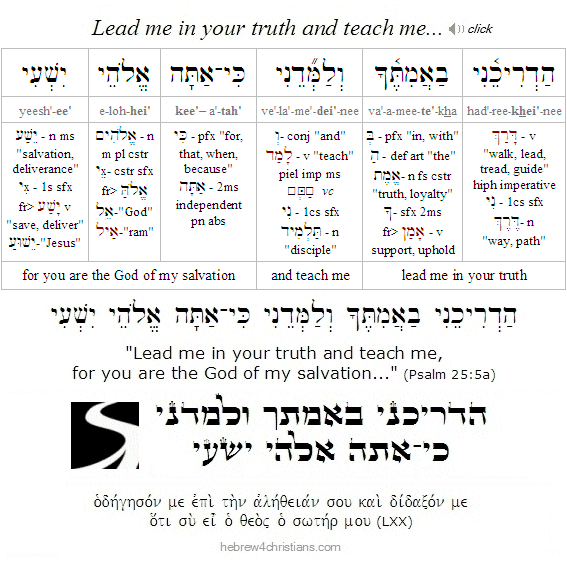 |
Promised Seed of Abraham...

[ "And this is the testimony, that God gave us eternal life, and this life is in his Son. Whoever has the Son has this life; whoever does not have the Son of God does not have this life." ]
02.24.22 (I Adar 23, 5782) "I am the way and the truth and the life: no one comes to the Father but by me" (John 14:6). No one has the right to come to God on his own terms - through religious practices or good deeds, for example. "There is a way that seems right to a person, but the end thereof is death" (Prov. 14:12). The way to life is narrow, and few there be that find it, for it is only in the Seed of Abraham that the blessing is given (Gen. 12:3).
This is what Yeshua meant when he said "salvation comes from the Jews" (John 4:22). "He declares his word to Jacob, his statutes and rules to Israel" (Psalm 103:7, 147:19). God is found in the promised Seed of Abraham, the promised Son of God, and not in the cerebrations of philosophers, nor the asceticism of monks, nor the fantasies of myth makers, nor even in the struggle with the darkness of the human heart, but solely in the historical Messiah, the King of the Jews, the Redeemer and Savior for all who trust in him (Jude 1:25).
Yeshua alone is the "place" of God, the Throne of God's Grace, where the truth of God's mercy is found (Psalm 85:10). Calling upon "God" apart from understanding his revelation and presence in the Messiah does not connect with God's heart. Therefore we read: "They cry out but there is no savior for them; even to the LORD, but he does not answer them" (Psalm 18:41). This is because God has manifested his truth to humanity in the incarnation of his Son and forever speaks to us in "the language of Son" (Heb. 1:2). There is no Savior than the LORD manifest in Yeshua the Messiah (Isa. 43:11, Isa. 45:21; 1 John 5:11-12).
The message of the gospel, then, is the great story of the salvation of the human race, understood and contextualized in God's revelation to Abraham, Isaac, and Jacob, and then through the subsequent history of the Jewish people, culminating in the coming of the Messiah (Gal. 3:16-19). "Unto us a child is born; unto us a son is given..." "Where is he that is born the King of the Jews?" Therefore the Spirit of Truth testifies of God's salvation given in Yeshua (John 16:13-15). Salvation is rooted in history, or rather "His-Story," that is, God's story of redemption given by means of his Son. "And beginning with Moses and all the Prophets, he interpreted to them in all the Scriptures the things concerning himself" (Luke 24:27). "And we know that the Son of God has come and has given us understanding, so that we may know Him who is true; and we are in Him who is true, in his Son Yeshua the Messiah. He is the true God and eternal life" (1 John 5:20).
Hebrew Lesson
John 14:6 Hebrew reading:
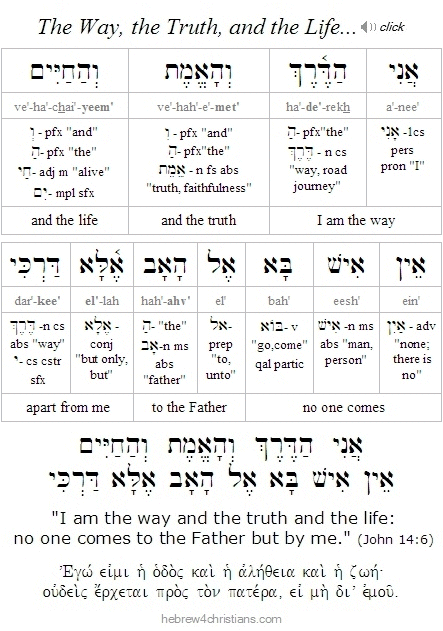 |
Mirror of Forgiveness...
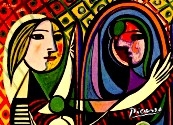
02.23.22 (I Adar 22, 5782) "And forgive us our sins as we forgive those who sin against us" (Matt. 6:12). Before offering personal prayer to the LORD, it helps to make the declaration: "Master of the universe, I hereby forgive anyone who might have hurt me this day, either physically or emotionally, whether accidentally on intentionally, inadvertently or deliberately, by speech or by deed, whether against my honor or anything else that is mine. May no one be punished because of me. Help me to overlook the faults of others and to always use the good eye, regarding them as You do... And I ask You to forgive me, too, for my many wrongdoings and failings. May it be Your will, Lord my God and God of my fathers, that I sin no more nor repeat my sins, neither shall I again anger You nor do what is displeasing in Your eyes. The sins I have committed, please erase in Your abounding mercies for the sake of Your Son, Yeshua the Messiah, my Savior and LORD. Amen."
"Forgive us... as we forgive...", which means that our forgiveness of others (including ourselves) is the measure of our own state of forgiveness, "for with the measure you use it will be measured back to you" (Luke 6:38). This is the great "like-for-like" principle of the spiritual life: As you give, so you will be given; as you withhold, so you will be withheld (Psalm 18:25-27). If we cling to resentment, anger, bitterness, or a desire for revenge, we appeal to principles of justice that alienate us from reconciliation with others. But if we intend to have God be the Judge of others, we thereby appeal to Him to be our own Judge as well. If we merely hear this truth but fail to practice it, we are like someone who looks at their face in a mirror but soon forgets "what manner of man he was," that is, by overlooking the truth about his inward condition (James 1:22-24). Just as someone who looks in a mirror but forgets the impression, so the someone who merely hears the Word soon forgets its point... "Hear the end of the verse," that is, listen to know how we must practice our faith. And just as grace is inaccessible for someone who refuses to be honest with himself, so is forgiveness. If a person refuses to confess the truth about his condition, salvation itself is impossible, since God literally cannot save the soul that denies its need for Him. We must accept others as we accept ourselves - as broken people who are redeemed and loved by God Himself. There are no exceptions to this "life-for-like" principle of the Spirit.
This teaching is thematic in Yeshua's ministry of reconciliation. In Luke's gospel we read: "Forgive us our sins, for we ourselves forgive everyone who is indebted to us" (Luke 11:4). Note the phrase, "every one who is indebted" (παντὶ ὀφείλοντι ἡμῖν). The Lord likens our sin to a debt owed to Him... Some things never ought to have been done, but when they are done, they are "stolen" from God, by abusing His sustaining energy and resources. When we sin, God enables us to do so at His expense, so to speak, though this is a "debt" owed to Him as the Master of the Universe and LORD of Glory. May our LORD help each of us to let go and be free of those things that ensnare us through offence...
"May it be Thy will, O Lord our God and God of our fathers, to remove all barriers between us, and to endow us with the vision to see the good in all people - including ourselves - and to graciously overlook their defects and shortcomings." As Francis of Assisi once rightly prayed: "Lord, make me an instrument of Your peace. Where there is hatred, let me sow love; where there is injury, pardon; where there is doubt, faith; where there is despair, hope; where there is darkness, light; where there is sadness, joy... O, Divine Master, grant that I may not so much seek to be consoled as to console; to be understood as to understand; to be loved as to love; For it is in giving that we receive; it is in pardoning that we are pardoned; it is in dying that we are born again to eternal life." Amen.
Hebrew Lesson
Matt. 6:12 Hebrew reading:
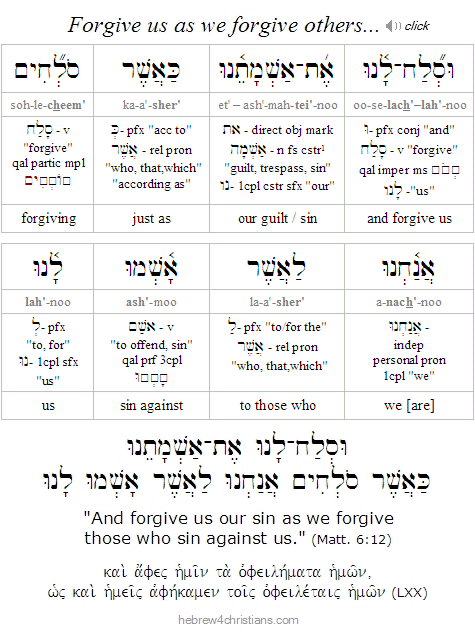 |
From our point of view things may appear random, though of course from God's perspective nothing is... "My thoughts are not your thoughts; your ways are not my ways" (Isa. 55:8), which means that in this life there will always be a gap between our theology and our faith. We shouldn't make a pretense out of this: why many things happen is not known by us, and we are left in a state of unknowing. Faith trusts God's hand in the darkness...
Hebrew Lesson
Isaiah 55:8 Hebrew reading:
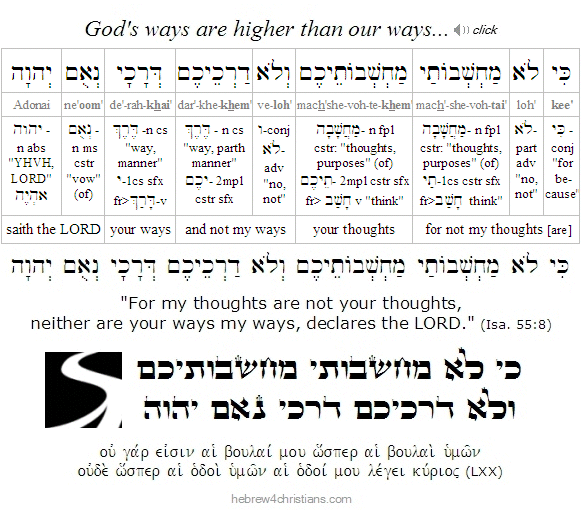 |
We are all frail people in need of forgiveness, encouragement, and acceptance. May we all be patient and forgiving toward one another, since we are all children of Adam who struggle with sin, despair, and we all suffer from cognitive dysfunction... As Mark Twain once said: "Let us consider that we are all partially insane. It will explain us to each other; it will unriddle many riddles; it will make clear and simple many things which are involved in haunting and harassing difficulties and obscurities now." Good advice....
Do you now believe?

[ The sages say that only one out of five of the children of Israel left Egypt; some say one out of fifty, and some say one out of five hundred (Mechilta). "Many are called but few are chosen..." ]
02.22.22 (I Adar 21, 5782) Regarding the question of faith, Soren Kierkegaard once wrote, "The easiness of Christianity is distinguished by one thing only: by the difficulty. Thus the Master's yoke it easy and its burden light -- for the person who has cast off all his burdens, all of them, the burdens of hope and of fear and of despondency and of despair -- yet it is difficult." Yes, the difficult thing is to truly believe (John 16:31). Sins can be like great possessions that are difficult to give up. Among other things, we must forgive ("give away") our sins (both our own and those against us), and that means trusting God enough to bear our wounds for us. Forgiveness allows us to move on with our lives by letting go of the pain of the past (2 Cor. 5:16). It is "easy" to understand this, but it is difficult to live it.
Hebrew Lesson
Psalm 55:22 Hebrew reading:
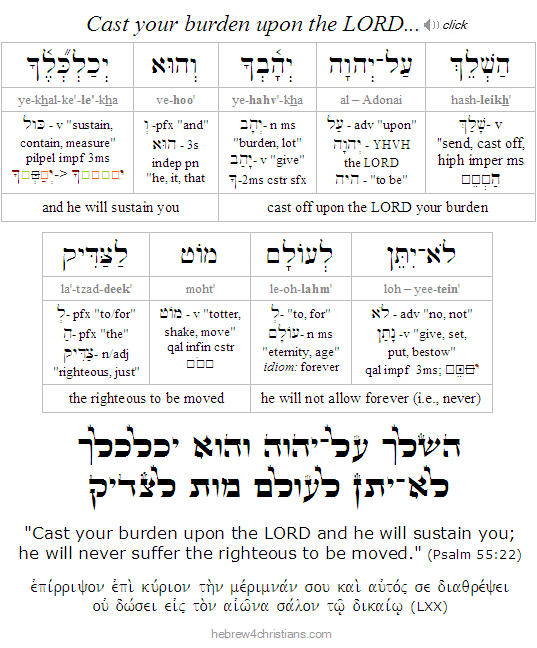 |
The message of the cross is scandalous to human pride because it reveals that we are powerless to save ourselves. We trust Yeshua's finished work performed on our behalf, not our own works of righteousness (John 6:29; Titus 3:5-7). The Torah of Yeshua (תּוֹרַת יֵשׁוּעַ), however, does indeed include some very specific commandments, including the following:
- "Thou shalt believe thou are my beloved - entirely accepted and entirely forgiven"
- "Thou shalt forget the shame of thy past"
- "Thou shalt stop thinking of your sin but rather of My great remedy for you"
- "Thou shalt let me carry your woundedness far away, yea, to the bottom of the sea"
- "Thou shalt live in My love and be filled with its spirit"
- "Thou shalt believe in a happy ending, and that love is stronger than justice"
- "Thou shalt fear nothing but that which causes you to lose hope in My love..."
(Please note that these are implications derived from various Scriptures. For example, see Isa. 54:8; Jer. 31:3; Isa 54:4; Jer. 31:34; Heb. 8:12; Isa. 41:10; 45:22; Rom. 4:25; Psalm 103:10-14; John 14:1,27; Mic. 7:19; Isa. 38:17; John 14:21; 15:5,10; Gal. 5:22-23; 1 Cor. 13; 1 John 3:1; Rom. 8:28-39; Psalm 89:14; 85:10; Luke 11:42; 1 John 4:18, etc.)
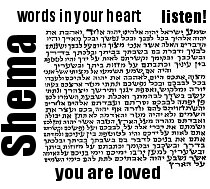 |
The difficulty, I repeat, is to genuinely believe that the love's miracle is for you - and that therefore you really are a "new creation" in the Messiah (2 Cor. 5:17). The reason this is difficult is because we are still living in an "already-not-yet" place of exile, the "two-souled" state of being that only is able to "see through a glass darkly." We are trusting in God, yet we must "work out" our own salvation with fear and trembling (Phil. 2:12). But notice that we "work out" what God has already "worked in," since it is "God who works in you both to will and to do His good pleasure" (Phil. 2:13). Please do not miss this - God first works His love into our hearts, and then we are able to express that in works of love... From start to finish, only genuine faith in Yeshua performs the "work of God" (John 6:28-29), and never our own ludicrous efforts of affecting self-righteousness (Titus 3:5). If you are lacking in the fruit of the Spirit (i.e., the works of God), then the right approach is to turn around and confess your faithlessness: "Lord, I believe; help Thou my unbelief..." (Mark 9:24). Our LORD is near to the brokenhearted and saves the crushed in spirit (Psalm 34:18).
May we all draw near to the LORD and call upon His Name for life this very hour, this very moment, and at this time... Amen.
 |
Alongside the Fleeting...

[ "God hides the fact that he is hiding, and then those from whom he is hiding do not know him as the hidden One." - Chasidic saying ]
02.22.22 (I Adar 21, 5782) God's people are always "strangers" in this world; they are literally "e-stranged" -- living here, yet not here. We are outsiders and pilgrims, not at home in this world, and our faith therefore is both a type of "protest" against any interpretation of reality that excludes, suppresses, denies, or minimizes the Divine Presence as well as a longing for the place where we truly belong.... If you feel crazy in an insane situation, then you are really quite sane... The world will feel oppressive and strange once you have been awakened from its madness and refuse to be moved by the delusions of the crowd... Life in olam hazeh (this world) is a place of passing that leads to the world to come. Our faith affirms that underlying the surface appearance of life is a deeper reality that is ultimately real and abiding. It "sees what is invisible" (2 Cor. 4:18) and understands (i.e., accepts) that the "present form of this world is passing away" (1 Cor. 7:31).
The Apostle Paul taught that we to be "conformed" (σύμμορφος) to the Messiah (Rom. 8:29), but not "conformed" (συσχηματίζω) to the pattern of this fallen world (Rom. 12:2). The former word means to resemble or be made similar in form (μορφή), whereas the latter means to accept the world's scheme (σχῆμα) of understanding things, to passively go along with the world's lies, wishful thinking, fearmongering, propaganda, etc. Of course we need God's help to escape the "programming" of our age, and therefore the Holy Spirit helps us to become transfigured – "changed from the inside out" - by the renewal of our minds, enabling us to see things in light of the reality of our identity in the Messiah. So refuse to let the world system get you down, but focus on God and His great glory. Take heart, friends: being exiled by the world is an indication that you belong to the Kingdom of God...
Hebrew Lesson
1 Chron. 29:15 Hebrew reading:
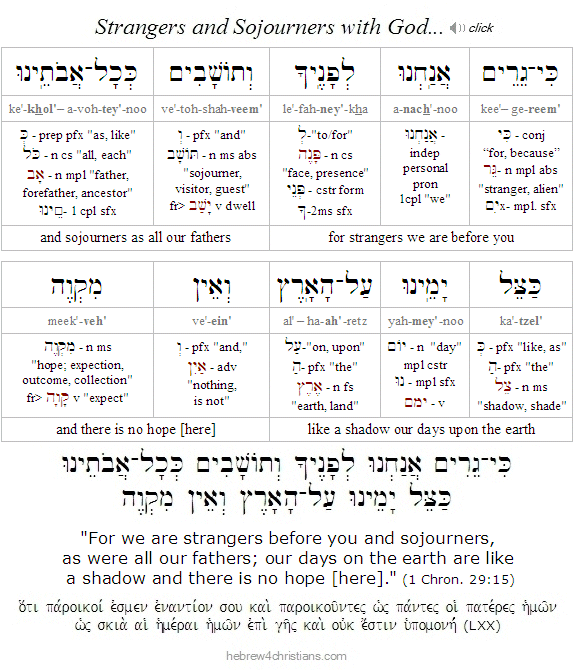 |
The Wise Hearted...
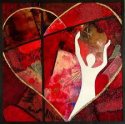
02.22.22 (I Adar 21, 5782) From our Torah portion this week (i.e., Vayakhel) we read: "Let every wise-hearted person among you come and make all that the LORD has commanded" (Exod. 35:10). Just as God creates the world in chesed (עוֹלָם חֶסֶד יִבָּנֶה), so the wise of heart are able to build up the sanctuary of God. "Love builds up." Being "wise of heart" (חֲכַם־לֵב) means having emotional maturity, humility, and rightly ordered affections. Such heart wisdom does not depend on how smart you are or what sort of education you might have, but rather whether you are able to emotionally comprehend a situation, whether you are willing to allow the heart to discern the inner meaning of a message. The wise of heart are those who "build up" God's kingdom and help provide sanctuary for others...
וְכָל־חֲכַם־לֵב בָּכֶם יָבֹאוּ
וְיַעֲשׂוּ אֵת כָּל־אֲשֶׁר צִוָּה יְהוָה
ve·khohl-cha·kham-lev · bah·khem · yah·voh'·oo
ve·ya·a·soo · et-kohl-a·sher · tzee·vah · Adonai

"Let every wise-hearted person among you come
and make all that the LORD has commanded"
(Exod. 35:10)

After Moses saw all the work that was done for the building of the Tabernacle, he blessed the people saying, "May it be the will of God that His Presence dwells within the work of your hands" (Exod. 39:33-43; Psalm 90:17). Rashi notes that even if a person feels entirely inadequate for the task, the Torah affirms that he should nevertheless do his or her part. "Every assembly for the sake of heaven must in the end stand" (Avot 4:11). When we apply our hearts to serve God, the Lord will give us the Spirit to empower our way; if we make ourselves his willing vessel, He will establish the work of our hands....
Hebrew Lesson
Psalm 90:17 Hebrew reading:
Seeing your new face...
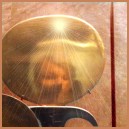
[ "And he (Betzalel) made the large basin of bronze and its pedestal of bronze from the mirrors of the women who served at the entrance of the tent of meeting" (Exod. 38:8). ]
02.21.22 (I Adar 20, 5782) At the entrance of the Mishkan (i.e., "Tabernacle") a copper "laver" (i.e., wash basin or cistern) was built, the place where we wash and prepare ourselves to come before the Divine Presence (Exod. 30:18). The Torah says the basin was made from the mirrors of women who offered them to help build the sanctuary (see Exod. 38:8). Spiritually understood, the mirror was transformed from a place where we encounter our own appearance to a place where we encounter God. Instead of focusing on our superficial face – how it looks and how we esteem ourselves, we now see ourselves in light of God's love, with our former self-image "sacrificed" or surrendered for the gift of a deeper self (2 Cor. 5:16). This is the "new self" cleansed by the Word of God, reflecting back the radiance of His Presence, as it says: "put on the new self (הָאָדָם הֶחָדָשׁ) created after the likeness of God in true righteousness and holiness" (Eph. 4:24).
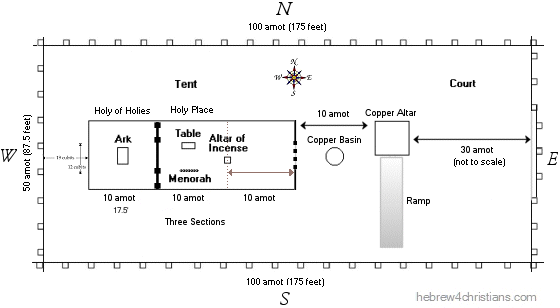 |
The "sacrificed mirror" represents turning to face reality, to see ourselves as God see us... Because of Yeshua, we have access to the inner heart of God (Heb. 4:16). Know who you are in Messiah: "And we all, with unveiled face, beholding the glory of the Lord, are being transformed into the same image from one degree of glory to another. For this comes from the Lord who is the Spirit" (2 Cor. 3:18).
Note: In another metaphor, it is noted that when smelting gold, the refiner skims off the surface dross until he can see his reflection shine back in clarity.... Likewise, the LORD is our Refiner, and he removes the dross from our lives so that his image shines from us.
Hebrew Lesson
Psalm 18:28 Hebrew reading (with comments):
Seeking What is Above...
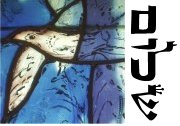
[ "What is the temptation that in itself is many temptations ... but to lose oneself, to lose one's soul, to cease to be a human being and live as a human being instead of being freer than the bird of the air..." - Soren Kierkegaard: "Lily of the Field and the Bird of the Air" ]
02.21.22 (I Adar 20, 5782) "If then you have been raised with Messiah, seek the things that are above, where the Messiah is seated at the right hand of God (לִימִין הָאֱלהִים); focus your thoughts on the things above - not on things here on earth - for you have died, and your life has been hidden with Messiah in God" (Col. 3:1-3). Note that the verb translated "you have died" (ἀπεθάνετε) indicates that your death is a spiritual reality you must accept by faith. You don't "try to die" to the flesh, since that is the fool's errand of man's "religion." No, you trust that God has killed the power of sin and death on your behalf and imparted to you a new kind of life power (John 1:12; Eph 2:5). Because you partake of an entirely greater dimension of reality, namely, the spiritual reality hidden from the vanity of this age, your life is likewise hidden from this world (Col. 3:4). Therefore we are instructed to consciously focus our thoughts (φρονέω) on the hidden reality of God rather than on the superficial and temporal world that is passing away: "For we are looking not to the things that are seen but to the things that are unseen. For the things that are seen are transient (i.e., "just for a season," καιρός), but the things that are unseen are eternal" (2 Cor. 4:18).
Just as you must trust and accept that Yeshua was crucified for you, identifying with you, taking your place in judgment, exchanging his life for your own, so you must trust and accept that you have been crucified with him, and that your old life was taken away and replaced with a new, indestructible nature. In other words, a union is created where his "for me" is answered by my "with him." Χριστῷ συνεσταύρωμαι– "I already have been crucified in Messiah" (Gal. 2:20). Indeed the two go together: to trust in the finished work of Messiah for you is to trust in his finished work within you... When he died on the cross for you, which sins didn't he bear on your behalf? which remedy did he leave unfulfilled?
Hebrew Lesson
Psalm 73:24 reading:
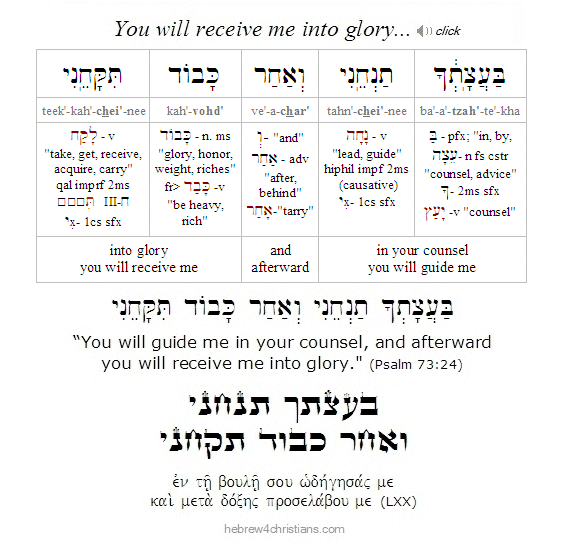 |
Teshuvah and Humility...
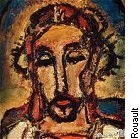
02.21.22 (I Adar 20, 5782) Concerning the theme of teshuvah, or "repentance," we read: "For this is what the high and lifted up One says, the One who abides forever, whose Name is Holy (קָדוֹשׁ): "I dwell in a high and holy place, but also with the broken and lowly of spirit, to revive the spirit of the lowly (i.e., ruach shefalim: רוּחַ שְׁפָלִים), and to revive the heart of the crushed" (i.e., lev nidka'im: לֵב נִדְכָּאִים) [Isa. 57:15]. Here we learn that God gives life (revives) to those who are "lowly in spirit" (שְׁפַל־רוּחַ), that is, to those who understand their own nothingness and complete dependence on God for life... Indeed, the "heart of the crushed" (לֵב נִדכֶּה) refers to being crushed "to the dust" -- the same word (dakka: דַּכָּא) is used to describe how Yeshua was "crushed for our iniquities" (Isa. 53:5,10; Heb. 9:26). William James called this deep work of the spiritual life "Zerrissenheit," a term that can be translated as "torn-to-pieces-hood," or a state of being utterly broken and in disarray... From the point of view of our dependence on God for salvation, "dakka" refers to humility and contrition we express in light of God's unmerited favor and love for our souls. We humbly identify with the death of Messiah offered on our behalf; we find healing and acceptance in the Presence of the One who was torn to pieces and made dust for our merit. Humility (עֲנָוָה) is essential to awareness of God in the truth. Shuvah Yisrael!
Constructing the Tabernacle
Parashat Vayakel...
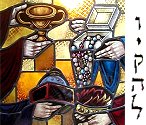
[ The following is related to this week's Torah reading, parashat Vayakhel... ]
02.20.22 (I Adar 19, 5782) According to tradition, Moses descended from Sinai (with the second set of tablets) on Yom Kippur (Tishri 10), and on the following morning he assembled (וַיַּקְהֵל) the people together to explain God's instructions regarding building the Mishkan (i.e., Tabernacle). First, however, Moses reminded the people to observe the Sabbath as a day of rest, and then he asked for contributions of gold, silver, bronze, and other materials for the construction of the sanctuary and its furnishings. Each contribution was to be a "free-will offering" (i.e., nedivah zevach: נְדָבָה זֶבַח) made by those "whose heart so moved him." As a sign of their complete teshuvah (repentance) for the sin of the Golden Calf, the people gave with such generosity that Moses finally had to ask them to stop giving!
Betzalel and Oholiav were appointed to be the chief artisans of the Mishkan, and they led a team of others that created the roof coverings, frame, wall panels, and foundation sockets for the tent. They also created the parochet (veil) that separated the Holy Place (ha'kodesh) from the Holy of Holies (kodesh ha'kodeshim). Both the roof and the veil were designed with embroidered cherubim (winged angelic beings). Betzalel then created the Ark of the Covenant and its cover called the mercy seat (kapporet), which was the sole object that would occupy the innermost chamber of the Holy of Holies. Betzalel also made the three sacred furnishings for the Holy Place – the Table of Bread (shulchan), the lamp (menorah), and the Altar of Incense (mizbe'ach ha'katoret) – as well as the anointing oil that would consecrate these furnishings.
Betzalel then created the Copper Altar for burnt offerings (along with its implements) and the Copper Basin from the mirrors of women who ministered in the entrance of the tent of meeting. He then formed the courtyard by installing the hangings, posts and foundation sockets, and created the three-colored gate that was used to access the courtyard.
Shabbat Shekalim (שבת שקלים)
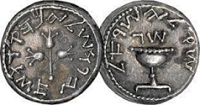
02.20.22 (I Adar 19, 5782) Four special Sabbaths occur just before the start of spring: two before Purim and two before Passover. Collectively, these Sabbaths are called "The Four Shabbatot" and four additional Torah readings (called Arba Parashiyot, or the "four portions") are read on each of these Sabbaths in preparation for the holidays. The names of these four Sabbaths are Shekalim, Zakhor, Parah, and HaChodesh, respectively.
The first of the four Sabbaths is called Shabbat Shekalim (שבת שקלים), "the Sabbath of the Shekels," which occurs just before the month of Adar begins (or Adar II during leap years). An additional reading (Exod. 30:11-16) is appended to the regular Torah reading that describes the contribution of a half-shekel (i.e., chatzi shekel: חצי שקל) for the construction and upkeep of the sacred Mishkan (Tabernacle). According to various midrashim (i.e., Bavli, Shekalim 1), the half-shekel represents a "fiery coin" that the LORD brought from underneath the Throne of His Glory to symbolically "atone" for the sin of the Golden Calf. Since every Jew was required to give this "widow's mite," repentance is accepted for all who come in true humility before the LORD. For us, it might be a time to remember those who make personal sacrifices so we might draw closer to God.
Hebrew Lesson
Exodus 30:13b reading:
Rosh Chodesh Adar Sheni (ראש חודש אדר ב׳)
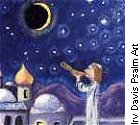
02.20.22 (I Adar 19, 5782) Wednesday, March 2nd marks Rosh Chodesh Adar II (חודש אדר), that is, the so-called "thirteenth" month of the Jewish calendar (counting from the month of Nisan). During Jewish "leap years" an additional month is inserted into the Jewish calendar, and the month of Adar is appended by an additional month called Adar Sheni (or Adar II). From the point of view of the holidays, Adar II is considered the "twelfth month," so the holiday of Purim, for instance, is always celebrated during Adar II during Jewish leap years.
What are Jewish Leap Years?
A Jewish leap year contains 54 weeks, but a non leap year has only 50 weeks (a leap-year adds an additional month (called Adar II) to the usual 12). To determine whether a given Jewish year is a leap year, you will need a calculator that includes the mod() function. Enter the current Jewish year and then perform "mod 19." If the result is either 0, 3, 6, 8, 11, 14, or 17, then it is a Jewish leap year. For example, 5782 mod(19) is 6, and therefore is a Jewish leap year.... When in doubt, however, always check a good Jewish calendar.
יְהִי רָצוֹן מִלְּפָנֵיךָ יהוה אֱלהֵינוּ
וֵאלהֵי אֲבוֹתֵינוּ שֶׁתְּחַדֵּשׁ עָלֵינוּ חדֶשׁ טוֹב
בַּאֲדנֵינוּ יֵשׁוּעַ הַמָּשִׁיחַ אָמֵן
ye·hee · rah·tzon · meel·fah·ney'·kha · Adonai · e·loh·hey'·noo
vei·lo·hei · a·vo·tey'·noo · she·te·cha·deish · ah·ley'·noo · choh·desh · tohv
ba·a·doh·ney'·noo · Ye·shoo'·a · ha·mah·shee'·ach · ah·mein

"May it be Your will, LORD our God and God of our fathers,
that you renew for us a good month in our Lord Yeshua the Messiah. Amen."
Teshuvah of Silence...
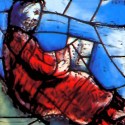
02.18.22 (I Adar 17, 5782) It sometimes seems that no matter what I do to wake people up, they inevitably go back to sleep... I suppose I am a bit of a bore though, since I keep talking about the weight of eternity and the inevitability of judgment for our lives. I cannot take it personally, though, as Blaise Pascal once said, "there is enough light for those who want to believe, and enough shadows to blind those who don't," and that means it is a matter of each individual's heart to decide what matters most.
Regarding the task of sharing spiritual truth Kierkegaard once commented: "Perhaps you think that a preacher of repentance is like a rushing violent wind that terrifies physically. No, the true preacher of repentance, like God's voice, also comes in a gentle breeze – yet it is not soft but rigorous, as rigorous as the earnestness of eternity." God was not in the sound of the strong wind, nor of the breaking rocks, nor in the quake of the earth, nor in the midst of the fire, but kol demamah dakah (קול דממה דקה), in the "sound of the still silence."
The message of the gospel demands honesty of heart, but, alas, the willingness to humbly acknowledge our own inner wretchedness and the need to be saved from ourselves has never been a popular message. After all, the religious leaders hated Yeshua because he testified to the truth of their hypocrisy and deflated their sense of self-importance."Those who cling to lying vanities," the prophet said, "abandon their own mercy" (Jonah 2:8).
Instead of seeking a "good life" in this dying world, we must turn to face reality by acknowledging its pervasive brokenness. If we refuse to let go of our demand for happiness we will eventually be shattered and blame God for our troubles. We may suspect that our suffering is a sign of God's disapproval or rejection; we may begin to question whether God will ever heal us, give us his blessing, and so on. We must remember that God's promises were never intended to give comfort to those who seek contentment in this world, or even to those who simply want a "happy ending" to a life of carnal ease... No, the message of hope is delivered to those who have "ears to hear and eyes to see" - that is, to those who know they are dying, that life is beyond their control, and who understand their great need for divine intervention. Far from being a sign of God's abandonment, our discontentment indicates God's near presence and the remedy of our lethal condition given in Yeshua.
Hebrew Lesson
Jonah 2:8 reading with comments:
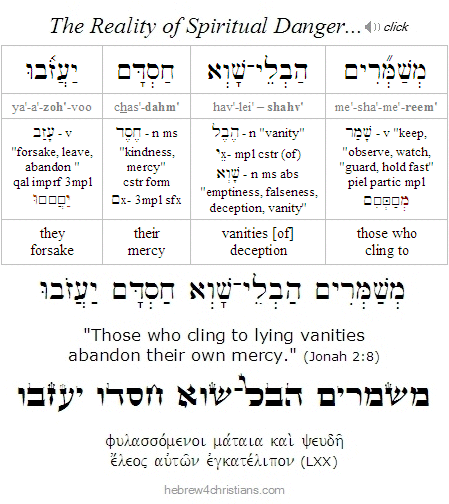 |
"There appear to be many people who chose to go crazy (or become alcoholics, addicts, criminals, suicides) rather than have to bear the pain and ambiguity of a life situation that they have decided that they cannot stand" (Sheldon Kopp). Like Jonah we first must be "swallowed up" in the consciousness that we are undone and without remedy apart from God's direct intervention and deliverance. עָקב הַלֵּב מִכּל וְאָנֻשׁ הוּא מִי יֵדָעֶנּו (Jer. 17:9). We start there - in the "belly of the fish" - and later are resurrected to go forth by God's mercy and grace. Likewise we first see ourselves as dying and go to the cross, finding pardon and given the power of the ruach HaKodesh to live unto God according to the truth.
Remembering the Future...
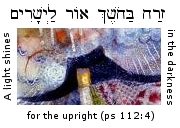
02.18.22 (I Adar 17, 5782) We must "remember the future," for our salvation is bound up in hope (Rom. 8:24; Heb. 11:1). There is a promised time of healing and deliverance awaiting us, though we must abide in the shadow of its substance for a bit longer: "For behold, the Day is coming (הַיּוֹם בָּא), burning like an oven, when all the arrogant and all evildoers will be stubble. The Day that is coming shall set them ablaze, says the LORD of hosts, so that it will leave them neither root nor branch. But for you who fear my Name, the Sun of Righteousness (שֶׁמֶשׁ צְדָקָה) shall rise with healing in its wings. You shall go out skipping like calves released from the stall. And you shall tread down the wicked, for they will be ashes under the soles of your feet, on the day when I act, says the LORD of hosts" (Mal. 4:1-3).
The "Sun of Righteousness," Shemesh Tzaddik (שֶׁמֶשׁ צְדָקָה), is Yeshua the son of David, the ascended life-giving Healer of God. Of Him it is said, "The LORD God is a sun and a shield" (Psalm 84:11) and "the LORD shall be to thee an everlasting Light (אוֹר עוֹלָם), and thy God thy glory; thy sun shall no more go down, for the Lord shall be thine everlasting light" (Isa. 60:19-20). The Divine Light will shine on those who receive God's righteousness, that is, on those who put their trust in the One who said, 'I am the Light of the world' (John 8:12).
Yeshua is melech ha-kavod (מֶלֶךְ הַכָּבוֹד), "the King of Glory" -- and no one can stand before the blinding power of His countenance (Psalm 27:4; Rev. 1:8-19). His is the "Fountain of Light" for all of creation, the Source and End of all life: "For by Him all things were created, in heaven and on earth, visible and invisible, whether thrones or dominions or rulers or authorities -- all things were created through Him and for Him. And he is before all things, and in him all things hold together... that in everything He might be preeminent" (Col. 1:16-18). Yeshua will come "with healing in his wings" -- that is, in healing radiance, with rays and beams, which metaphorically describe His influence over the hearts of men... Note that the word for "wings" used in this passage (i.e., kanaf: כָּנָף) pictures the image of a heavenly tallit (טַלִּית), or the heavenly firmament (רָקִיעַ) of the LORD's sheltering Presence.
So "remember your future," chaverim, the day draws near! Let us not grow weary. Let us renew our hearts and confess the truth of God's blessing in our hearts. "Now it is being decided whether, in the day of your supreme sorrow or temptation, you shall miserably fail or gloriously conquer. Character cannot be made except by a steady, long-continued process" (Phillips Brooks). Amen. Let us continue to trust in the One who has promised never to leave nor forsake us, the One who gives us the strength to persevere amidst the trials of life, who gives us the victory over the powers of hell and death for the sake of His great Name.
Hebrew Lesson
Isaiah 60:20b Hebrew reading:
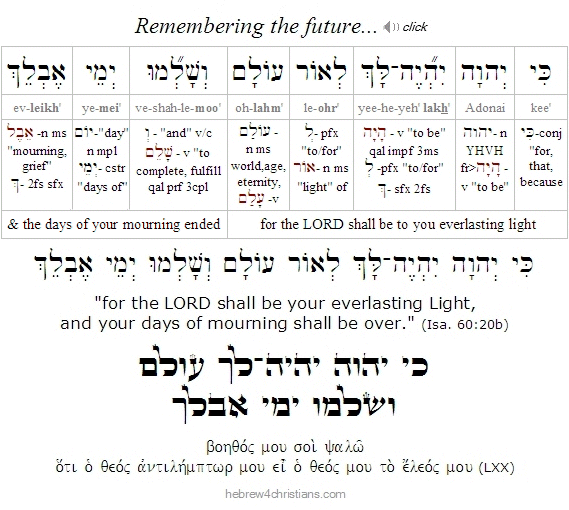 |
Healing the Sick Soul...

[ True spirituality is grounded in humility and honesty. "No person is saved except by grace; but there is one sin that makes grace impossible, and that is dishonesty; and there is one thing God must forever and unconditionally require, and that is honesty."- Kierkegaard ]
02.18.22 (I Adar 17, 5782) Sickness of the soul is just as serious as sickness of the body, and indeed many of our physical sicknesses come from being sick at heart - by living in fear or despair, or by allowing unresolved guilt or anger to destroy ourselves. The Scriptures state that just as a body can become sick with illness, so can the soul: "I said, 'O LORD, be gracious to me; heal my soul (רְפָאָה נַפְשִׁי), for I have sinned against you'" (Psalm 41:4).
Hebrew Lesson
Psalm 41:4 Hebrew reading:
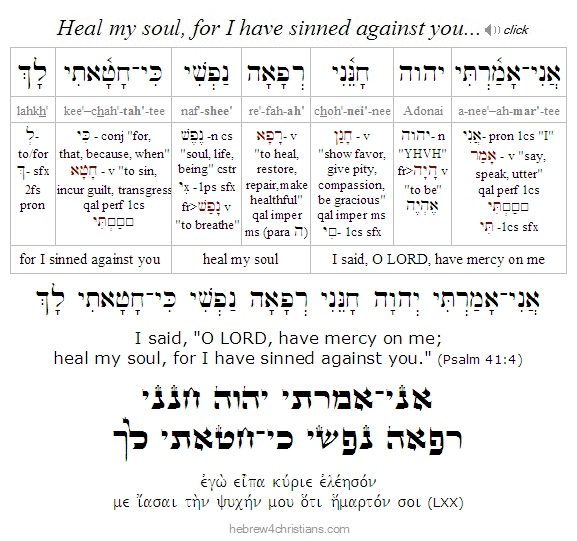 |
Note the connection between healing of the soul and the confession of sin in this verse. Often we are sick because of inner secrets that need to be brought to the light (1 John 1:9). "Therefore, confess (ἐξομολογέω, lit. 'confess out') your sins to one another and pray (εὔχομαι) for one another, that you may be healed. The prayer of a righteous person (i.e., tzaddik) works great power" (James 5:16). Being yashar - honest and upright - produces spiritual power and life. The word translated "pray" (euchomai) means to "wish (εὐχὴ) for oneself (or for another) the good." Confession (ὁμολογία) means bringing yourself naked before the Divine Light to agree with the truth about who you are. Indeed, the word homologeo literally means "saying the same thing" - from ὁμός (same) and λόγος (word). We need to confess the truth if we are to be free from the pain of the past.
Followers of Yeshua are called to be healers (Luke 9:1). The most common word for healing in the New Testament is therapeuo (θεραπεύω), a word that means to serve, to care for, and to restore to health. Unlike showy ministers who draw crowds to demonstrate the power of miraculous "faith healing," spiritual healers take the time to listen to others, to hear their pain, and to extend compassion and grace to them. They help open the inner eyes of the heart by extending hope and a new vision about what is real... Indeed, lasting healing focuses less on being cured than on finding a hope that will never die.
Postscript: What eternal good would it do, after all, to be "cured" of some disease if a soul was not also delivered from the power of darkness and sin? What would such "healing" mean, in light of the truth of eternity? After all, if the evil one may afflict people with sickness, surely he may also remove it to keep a person in a state of bondage... Some people, after frantically searching for a cure to their sickness, finally must let go and accept that they are going to die... If they have come to real inner peace, if they hold hope of eternal life within them because of the message of Yeshua, then even though they might not be physically "cured" in this world of shadows, they are indeed forever "healed" for life in the "high country" of the world to come...
 |
The Gospel at Sinai...

[ The following is related to this week's Torah reading, parashat Ki Tisa... ]
02.18.22 (I Adar 17, 5782) The tragic episode of the Golden Calf revealed that the Israelites were unable to keep the law, even though they had personally experienced the power of God's deliverance from Egypt and had heard God's Voice directly speaking the Ten Commandments at Mount Sinai. The presence of the idol demonstrated that something more was needed, and that the law by itself was insufficient to change the heart (Rom. 3:20).
The poignant intercession of Moses on behalf of Israel - his willingness to die on behalf of the people - foreshadowed the need for a New Covenant (בְּרִית חֲדָשָׁה), a deeper revelation of the righteousness of God in terms of mercy and grace (Exod. 34:6-7; John 1:17; Rom. 3:21). The (second) revelation of the Name YHVH (יהוה) therefore represented a "gospel" moment for Israel. Just as the first set of tablets, based as they were on the justice and holiness of God, were broken, so a second set was graciously restored based on God's forgiveness and love. Likewise, Yeshua was broken on behalf of the law but was raised again so that all who trust in Him can understand that God is "merciful and gracious, slow to anger and abounding in steadfast love and truth" (Exod. 34:6, Psalm 86:15, 103:8). Only at the cross of Yeshua are God's justice and love forever reconciled (Prov. 16:6; Psalm 85:10; Rom. 3:26).
Hebrew Lesson
Psalm 86:15 Hebrew reading:
For more on this subject, see the Ki Tisa article, "God's Stubborn Love."
Confession and Conviction...

02.18.22 (I Adar 17, 5782) "Faith is the foundation (i.e., ὑπόστασις: the "substance," reality, underlying essence, etc.) of our hope, the conviction of the unseen... Without faith it is impossible to please God, for whoever would draw near must believe that God exists and rewards (μισθαποδότης) those who seek him" (Heb. 11:1,6). Note that God is pleased when we seek his presence, that is, when we when we look past the ephemera and ambiguity of the phenomenal world for the truth about spiritual reality (2 Cor. 4:18). For our part, faith resolves to confession (ὁμολογέω), that is, aligning our perspective and focus to agree with the revelation and message of divine truth and verbally declaring our conviction. We must say that we believe and affirm it with all our heart (Rom. 10:9). As it says, "I will make Your faithfulness known with my mouth" (Psalm 89:2). When you encounter tribulation, or experience some crisis of faith, boldly reaffirm your hope: "I believe in God's promise..." Physically expressing your faith is itself an act of faith, and this encourages your soul to trust in God's healing reward even in the present struggle or darkness...
Hebrew Lesson
Proverbs 105:4 Hebrew reading:
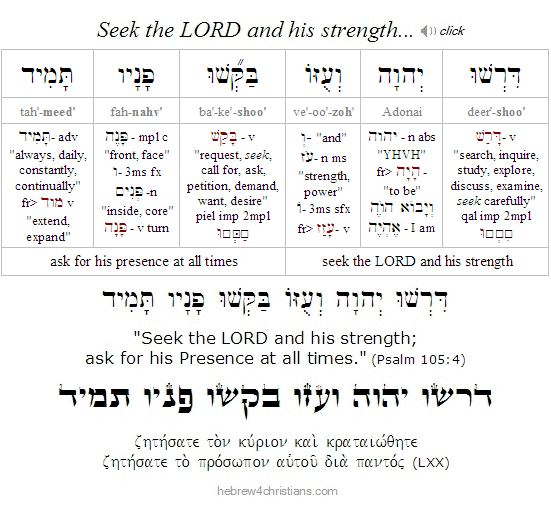 |
Torah of the Sabbath...

[ The following is related to our Torah reading this week, parashat Ki Tisa. Please read the Torah portion to find your place here... ]
02.18.22 (I Adar 17, 5782) Every Shabbat we recite kiddush and remember that God is both our Creator (Gen. 1:31-2:3; Exod. 20:8, 31:7) and our great Redeemer (Deut. 5:15). As it says in our Torah portion for this week (Ki Tisa), "Above all you shall keep my Sabbaths, for this is a sign (אוֹת) between me and you throughout your generations, that you may know that I, the LORD, sanctify you. You shall keep the Sabbath, because it is sacred for you, as a covenant forever (בְּרִית עוֹלָם)..." (see Exod. 31:12-17). When we usher in Shabbat on Friday evening, we bear witness that God is our Creator, our Redeemer, and our Savior. Note that the Hebrew word for "sign" (אוֹת) is formed using a Vav (וֹ) surrounded by an Aleph (א) and a Tav (ת), a word that pictures being surrounded by God's Presence. We enter into the all-encompassing rest that God provides - relying on His power and grace alone to make us whole. "It is finished," and the Sabbath testifies of the rest we have in Messiah, our Creator and Redeemer. We let go and are renewed by the grace of God.
Hebrew Lesson
Exod. 20:8 Hebrew reading:
We are not legalistic about Sabbath observance, of course, since that surely misses the point. As Yeshua taught us: "The Sabbath was made for man, not man for the Sabbath" (Mark 2:27). Note that well. The Sabbath was made -- it is the result of God's work performed on our behalf: "Come unto me, all ye that labour and are heavy laden, and I will give you rest" (Matt. 11:28). There remains a "Sabbath rest" for the people of God, which is the principle of God's power effecting life within us. The Sabbath is a delight – not a burden; a time for celebrating the finished work of Yeshua (Isa. 58:13; Heb. 4:9).
And of course the principle of Sabbath "surrender" applies to every day of our lives. After all, the "daily sacrifice," or korban tamid (קָרְבַּן תָּמִיד), was offered to the LORD every morning and evening upon the altar, which means we find our rest in Him every day, trusting in his sacrificial love to do the work of salvation within us... Surrendering to this truth enables us to be a "living sacrifice" (i.e., korban chai: קָרְבָּן חַי) and to die daily (Luke 9:23).
It is clear that the Sabbath will be honored in the Millennial Kingdom to come, and indeed, in heaven itself. Speaking of the coming Kingdom of God that will be established upon the earth, the prophet Isaiah foretold: "From new moon to new moon, from Sabbath to Sabbath (שַׁבָּת בְּשַׁבַּתּוֹ), all flesh shall come to worship before me, declares the LORD" (Isa. 66:23). Since this vision concerns the prophetic future, it is clear that the Sabbath day (as well as Rosh Chodesh, or the new moon) will be observed as well. Likewise, in the heavenly Jerusalem to come, the Tree of Life is said to yield "twelve kinds of fruit, yielding its fruit each month" (Rev. 22:2). Notice that the "twelve fruits" (καρποὺς δώδεκα) from the Tree of Life are directly linked to the "twelve months" of the Jewish year (κατὰ μῆνα ἕκαστον ἀποδιδοῦν τὸν καρπὸν αὐτοῦ: "each month rendering its fruit"). In other words, the sequence of the holidays (i.e., the mo'edim) - including the weekly Sabbath - was intended to teach us revelation about God.
Hebrew Lesson
Psalm 104:19 Hebrew reading:
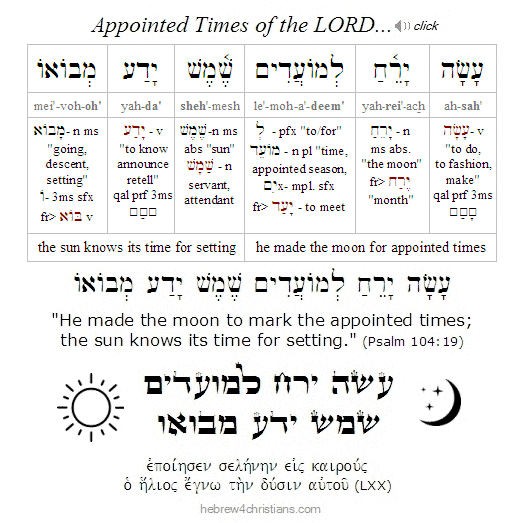 |
Comfort from the Shepherd...

02.17.22 (I Adar 16, 5782) The Spirit of the Lord comforts and reassures those who trust in Him: "My sheep hear my voice, and I know them, and they follow me. And I give them eternal life (חַיֵּי עוֹלָם), and they will never perish - no, never! - and no one will snatch them out of my hand" (John 10:27-28). Note that the Greek grammar in this verse uses a "double negation," which is the strongest way to deny something. In other words, if the question were asked, "Will one of these sheep perish?" the answer is emphatic: "No, no, it will never happen! It is unthinkable!" Indeed all those who belong to Messiah "shall never, ever perish - not into eternity (εἰς τὸν αἰῶνα)." It is an eternal certainty that you who are trusting in Yeshua will never perish, and no power in heaven or earth will be able to take you out of God's hand... "Surely goodness and mercy shall pursue you all the days of your life, and you shall dwell in the Presence of the Lord forever (Psalm 23:6).
Hebrew Lesson
Psalm 23:6 Hebrew reading:
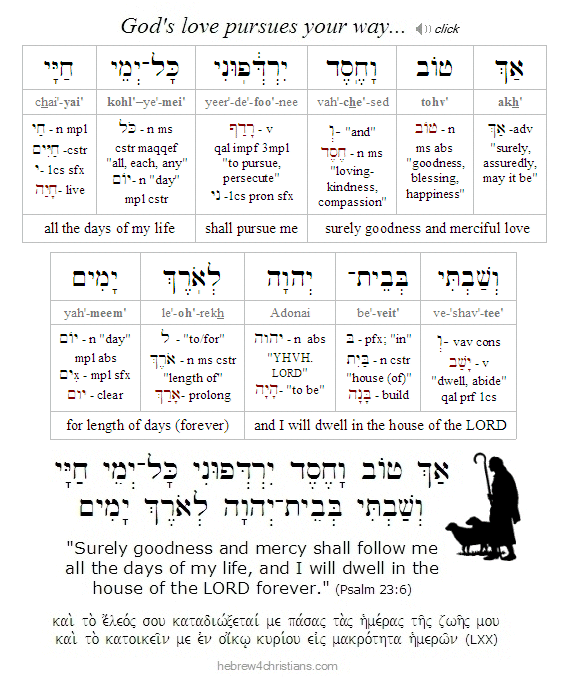 |
Regarding the certainty of salvation Yeshua said: "I tell you the solemn truth, the one who hears my message and believes in the One who sent me has (i.e., ἔχει, present active indicative) eternal life and will not be condemned, but has passed over (i.e., μετά + βαίνω, lit., "crossed over" [עָבַר]) from death to life" (John 5:24). Note that the verb translated "has passed over" (μεταβέβηκεν) is a perfect active that expresses completed action: "this one has already passed over from death to life." In other words, it is an accomplished spiritual reality though it is only experienced as we surrender to the love and grace of God. As the apostle Paul later summarized: "For it is by grace you have been saved (i.e., σεσῳσμένοι, a perfect passive participle that denotes completed action done on your behalf with effects that continue to the present) through faith, and this not from yourselves, it is the gift of God, not a result of works, so that no one may boast" (Eph. 2:9-10). Ultimately, salvation is a question about who you really are, not about what you do....
 |
The Fear of the LORD...
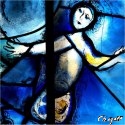
02.17.22 (I Adar 16, 5782) Some people are afraid that God will punish them for their sins, but the true fear of God, yirat shamayim (יִרְאָת שָׁמַיִם), is the tragedy of losing our closeness to Him... This is the fear of the Lord. The sages say that where it is written, "What does the LORD ask of you except to fear the LORD" (Deut. 10:12), we should read instead, "fear with the LORD" (לְיִרְאָה אֶת־יְהוָה), that is, we share his concern that we could forfeit the sanctity of a heart-relationship with Him due to carelessness and sin... We fear our sin because it blinds us from awareness of God's care and love. The fear of God can therefore be understood as God's fear that we will miss the blessing of intimately knowing him.
The LORD has promised to never leave nor forsake us, though we can choose to turn away from his love and care for our lives... We are not permitted to fear other than that we have no fear of God, for that indeed is a fearful state of soul. May it please God to help each us never to leave nor forsake ourselves by getting lost, by forgetting what is real, and by abandoning hope in the miracle for our lives... May the LORD help us not be grieved, not to hurt ourselves, and never to abandon our hearts to the despair of shame...
Note that the fear of the LORD, or "yirat Adonai" (יִרְאַת יְהוָה), is not the fear of punishment but rather the awe of God's love and intimate concern for your life... It is "techillat chokhmah" (תְּחִלַּת חָכְמָה), "the start of wisdom," imparting awareness of the sacred gift of your life, your destiny, and your true end before heaven... If there is a negative aspect to the "fear of the LORD," it may be regarded as the fear of damage to your heart and soul – that is, the fear that sin will blind you to God's passion for you...
Hebrew Lesson
Prov. 9:10 Hebrew reading:
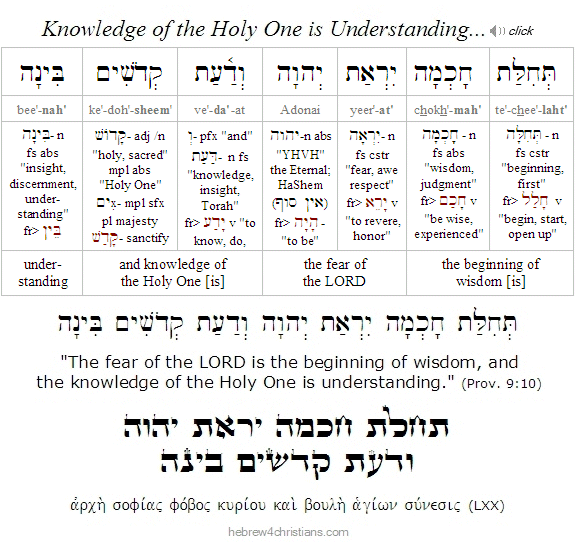 |
Some may object that all people (including unbelievers) should fear God (i.e., because God might send them to hell), but that appeal only makes sense if we assume the person has some sort of faith - no matter how indistinct or rudimentary... But a guilty conscience does not mean spiritual rebirth, though it may be a step on the way... The doctrine of the wrath of God is an important thing to consider, to be sure, and it is profoundly connected with his holiness and righteous judgment regarding sin, but it is essentially eschatological, a reciprocal response of heaven that ratifies the individual's willing rejection of God's salvation given in Yeshua, the one who mediates God's truth and his mercy (see Psalm 85:10). For the believer in the One who loves us so much he became the "Son of Man" to die as our substitutionary sacrifice, however, the fear of God is better expressed as reverent awe over his compassion: "That Messiah may dwell in your hearts through faith -- that you, being rooted and grounded in love, may have strength to comprehend with all the saints what is the breadth and length and height and depth, and to know the love of Messiah that surpasses knowledge, that you may be filled with all the fullness of God" (Eph. 3:17-19)."
 |
John's Health Update...

02.17.22 (I Adar 16, 5782) Shalom friends. I have a prayer request for the Hebrew for Christians ministry. I am dealing with Covid pneumonia "after effects" that have been affecting my ability to work efficiently (I also recently injured my back which is painful). Moreover we are trying to manage the various hospital bills, etc., which gets a bit distracting and exhausting. Please pray for "refuah shlemah," a complete healing so I can continue to serve here with all my heart, soul, and strength. Thank you so much, chaverim.
Hebrew Lesson
Psalm 6:2 Hebrew reading:
Torah of the Half-Shekel...

[ The following is related to our Torah reading this week, parashat Ki Tisa... ]
02.16.22 (I Adar 15, 5782) Our Torah portion this week (i.e., Ki Tisa) begins with the law of the "half-shekel" (מַחֲצִית הַשֶּׁקֶל), which teaches that each of us must contribute to establish the bounds of the Holy Place (Exod. 30:11-16). The Sanctuary is not only to be within us, but is to be built between us, in our connection with one another: God in the "midst of the camp." This is symbolized by the collection of coins given by every person – rich or poor – which was then melted down to make "sockets" for the Tabernacle, holding it all together.... The half-shekel is also called a "ransom for the soul to the LORD" (כּפֶר נַפְשׁוֹ לַיהוָה), since each soul is needed to build the holy place together: Each person is redeemed by God's love so that He dwells in the "midst of the camp" (1 Pet. 2:5; Eph. 2:20).
It has been noted that you cannot hear the sound of one grain of sand falling, though you can hear the sound when a bucket of sand is being poured out. Though each of us is a "half-shekel," only a small amount in light of the whole, we are not invisible or unimportant to God, and our contribution is part of his habitation, his kingdom. Amen.
Hebrew Lesson
Exodus 25:8 Hebrew reading:
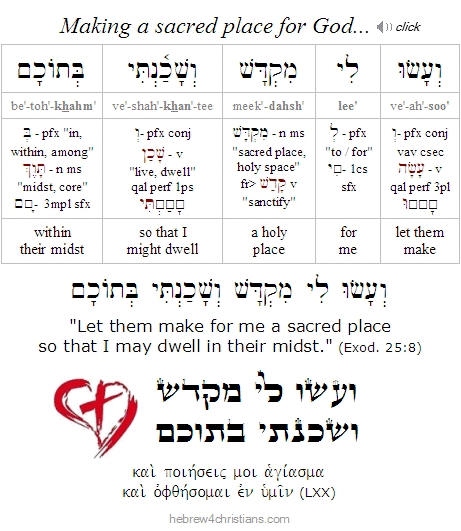 |
God's Providential Passion...

02.16.22 (I Adar 15, 5782) "The LORD will perfect that which concerns me: your love, O LORD, endures for ever: do not forsake the work of your hands" (Psalm 138:8). Here is the confession that all that I am or ever hope to be comes entirely from God, and therefore we can take heart. The LORD will finish the work he has begun in you: "Fear thou not, for I AM with you; be not dismayed, for I AM thy God; I will help you; yea, I will strengthen you, yea, I will uphold you with the right hand of my righteousness" (Isa. 41:10).
Understand that the LORD's purposes are sure and his promises will invincibly be fulfilled, "for his lovingkindness is infinite" (כִּי לְעוֹלָם חַסְדּו). God will never forsake you nor abandon the work of his hands, but will providentially preserve his handiwork and consummate his vision of love (John 17:22; Eph. 1:10; Zech 14:9). Amen, "He who began a good work in you will bring it to completion for the Day of Yeshua the Messiah" (יוֹם יֵשׁוּעַ הַמָּשִׁיחַ, Phil. 1:6). "Now to him who is able to keep you from stumbling and to present you blameless before the presence of his glory with great joy, to the only wise God our Savior (μόνῳ σοφῷ θεῷ σωτῆρι ἡμῶν), be glory, majesty, dominion, and authority, before all time and now and forever. Amen" (Jude 1:24-25).
Hebrew Lesson:
Psalm 138:8 Hebrew reading:
The Power of God...
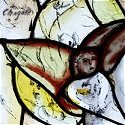
[ "Your faith should not stand in the wisdom of men, but in the power of God" - Paul]
02.16.22 (I Adar 15, 5782) "He gives strength to the faint..." (Isa. 40:29a). Human pride willingly hears that God gives strength, but it objects that such strength is found at the end of being rendered powerless. Yet this is the paradox that scandalizes human reason: the LORD God gives strength to the weary, to the broken, and to the troubled, and he opposes the proud by hiding himself by means of their own self-sufficiency. Faith's word to the proud of heart is this: "If anyone imagines that he knows something, he does not yet know as he ought to know" (1 Cor. 8:2). We must be humble to ascertain spiritual truth, and that means confessing our frailty and need. The pattern is that God brings us to the place of no escape so that we may come to know his mercies. Though "my flesh and my heart may fail," nevertheless "God is the strength of my heart and my portion forever" (Psalm 73:26).
Phillips Brooks (1835-1893) once admonished his congregation: "O, do not pray for easy lives. Pray to be stronger men! Do not pray for tasks equal to your powers. Pray for powers equal to your tasks! Then the doing of your work shall be no miracle. But you shall be a miracle ... which has come to you by the grace of God." Amen.
Hebrew Lesson:
Psalm 59:17 Hebrew reading:
Out of the Depths...

02.15.22 (I Adar 14, 5782) In the midst of his struggle, King David asked the LORD: "How long shall I take counsel in my soul, having sorrow in my heart daily?" (Psalm 13:2). There may be times when we lack eitzah (עֵצָה), or clear counsel to follow, and this can make us feel uncertain, alone, and even desperate. The sages advise in this case that you must cry out to God over and over, casting your burden upon him, and relying on Him alone...
Cast your "fate" (i.e., goral: גּוֹרָל) before the LORD, trusting in his providential care (Prov. 16:33; Psalm 55:22); let go of all your desires and fears – those dark forces that hold you captive – by opening your heart to the Holy Spirit. There is no fear in God's love (1 John 4:18), and that means you are set free to confess the truth of your struggle before the One who heals and delivers you. As long as you think your own counsel will effect deliverance (יְשׁוּעָה), however, there will be "sorrow in your heart daily," since there is no salvation apart from the grace and power of God. That is why David finally affirmed, "My heart shall rejoice in Your salvation" (Psalm 13:5) rather than "my heart shall rejoice in my salvation," since salvation is of the LORD (לַיהוָה הַיְשׁוּעָה) and not from the counsel of the soul...
Hebrew Lesson:
Psalm 13:2a Hebrew reading:
"How long shall I take counsel in my soul, having sorrow in my heart daily?" The sages answer: "Only when I know of no further counsel that can help me, and I give up taking counsel, and know of no other help but God, will help be vouchsafed me."
Alive together with Him...
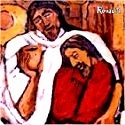
02.15.22 (I Adar 14, 5782) As our Teacher, Yeshua reveals the heart of God to us, teaching us about the meaning of life and death and why we suffer... Most radically, however, he offers us the cure for the sickness of "spiritual death" (i.e., separation from God) by offering the gift of his life for us. Yeshua heals us from alienation and separation from the Eternal by means of spiritual regeneration (Eph. 2:1,5; John 3:3-7). Your relationship with Messiah constitutes eternal life (חַיֵּי עוֹלָם), for it is He who "makes you alive together with him," i.e., συζωοποιέω, the Greek word here means you are brought into a new realm of existence by participating in the life in Messiah (Col. 2:13). He offers us daily deliverance from the power of sin by means of the Spirit of Truth (רוּחַ הָאֱמֶת), though we must remain receptive to the message of hope and be transformed by the renewing our minds (Rom. 12:2; Eph. 4:23; Col. 3:10). We must be careful not to "drift away" from the truth, since that forfeits the integrity of our lives and leads us into darkness and despair: "For what benefit is it for a person to gain the whole world, yet forfeit his life?" (Mark 8:36).
Faith is the means or agency of connection with what is real, though we can lose that connection by hardening our hearts and returning to our former illusions (Heb. 3:13). Exile from God is therefore self-imposed; the gates of teshuvah (repentance) are always open to those who seek God's compassion; everyone is welcome to find life in the blessing of Messiah (Luke 14:16-23; Luke 15:11-32). Therefore, draw near to God and God will draw near to you. "Let us then with confidence draw near to the throne of grace, that we may receive mercy and find grace to help in time of need" (Heb. 4:16).
Hebrew Lesson:
Isa. 55:6 Hebrew reading:
Our Daily Deliverance...

02.14.22 (I Adar 13, 5782) Just as we ask God for daily bread (לֶחֶם חֻקֵּנוּ), so we ask him for our daily deliverance: "Lead us not into temptation, but deliver us from evil" (Matt 6:13). Note that the term translated "evil" in many translations ("deliver us from evil") is a substantive rather than an adjective: τοῦ πονηροῦ, the evil one... "Give us this day our daily deliverance from the evil one...." Our daily bread and our daily deliverance are connected with our decision to "choose life" (בַּחַרְתָּ בַּחַיִּים) -- and to always choose life -- even in moments we find difficult, distressing, and even when we might wish that we were no longer living... Choosing life means refusing to escape reality by evading the significance of our choices; it means finding the will to regard life as worthy; it implies that we will eat our bread in trust that the Lord is at work even in the darkest of hours (Passover occurred at midnight)... Choosing life means refusing to eat the fruit of death and to seek Yeshua, the Tree of Life. We live one day at a time; we only have today. We are given daily bread for this hour of our need. Today is the day of your deliverance - if you are willing to walk in it. Therefore, the Spirit of the Living God cries out, "Choose life and live!"
"Do not be grieved [even over yourself], for the joy of the LORD (חֶדְוַת יְהוָה) is your strength" (Neh. 8:10). Affirming the love, faithfulness, compassion, and salvation of God is a powerful way to defeat the enemy of our souls, who regularly entices us to despair. King David constantly asked God to help him in his spiritual struggles. "Though I walk in the midst of trouble (בְּקֶרֶב צָרָה), you preserve my life; you stretch out your hand against the wrath of my enemies, and your right hand delivers me" (Psalm 138:7). "For the enemy has pursued my soul; he has crushed my life to the ground; he has made me sit in darkness like those long dead. Therefore my spirit faints within me; my heart within me is appalled" (Psalm 143:2-3). Despite whatever struggle we may face, "the LORD is near to the brokenhearted and saves the crushed in spirit (Psalm 34:18). Indeed, the Lord God is far greater than your heart's sin and will one day entirely deliver you of sin's effect and influence. Amen.
Hebrew Lesson:
Psalm 34:19 Hebrew reading:
The heart of prayer...
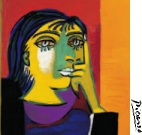
[ The words we use as we think affects the way we make decisions, etc., and therefore they are "things" that have real power... ]
02.14.22 (I Adar 13, 5782) Prayer, in its ultimate or "deepest" sense, is whatever we hold within our hearts. It may be spoken or merely thought; it may conscious or unconscious. A wish, a desire, a hope; a hatred, an aversion, a fear; even a yawn of indifference -- all prayers of the heart! Whatever we think, feel, and do constitutes prayer to the One who knows all things... The words we say, the thoughts we think, whether good or bad, call for a response in the realm of spirit. This is hinted at by the Hebrew word for "thing," i.e., devar, which also means "word." Listen to the words of your heart and understand that they are devarim, "things" that are defining the course of your life right now.
Hebrew Lesson
Psalm 139:4 Hebrew reading:
"Rabbi Bunam began teaching with these words: 'We thank You, who are blessed and who are the source of blessing, that you are manifest and hidden.' Then he continued: 'A fearless man must feel God as he feels the place on which he stands. And just as he cannot imagine himself without a place to stand on, so he must in all simplicity grow aware of God who is the Place of the world, and comprises it. But at the same time he must know that He is the hidden life which fills the world.'" (Martin Buber: Ten Rungs)
Parashat Ki Tisa:
Brokenness and Atonement...
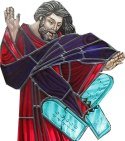
02.13.22 (I Adar 12, 5782) Shavuah tov, chaverim. Our Torah reading for this week is called "Ki Tisa," and is one of the longest of the Torah. The reading includes the tragic account of the Sin of the Golden Calf (עֵגֶל מַסֵּכָה) and Moses' passionate intercession for Israel to be forgiven. After a period of teshuvah (repentance) for Israel's idolatry, the LORD graciously revealed the meaning of the Name YHVH (יהוה), that is, the thirty-two words that have become known in Jewish tradition as the Shelosh Esrei Middot, or the "Thirteen Attributes of God's Mercy." This was the LORD's own definition of His character and attributes to Moses after the breaking of the Sinai covenant. See the Ki Tisa Summary for the Hebrew text and audio of this vital revelation from God.
זרח בחשׁך אור לישׁרים
חנון ורחום וצדיק
zah·rach · ba·choh'·shekh · ohr · lai·ye·shah·reem
cha·noon · ve·ra·choom · ve·tza·deek

"Light shines in the darkness for the upright;
He is gracious, compassionate, and righteous."
(Psalm 112:4)
Download Study Card
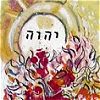
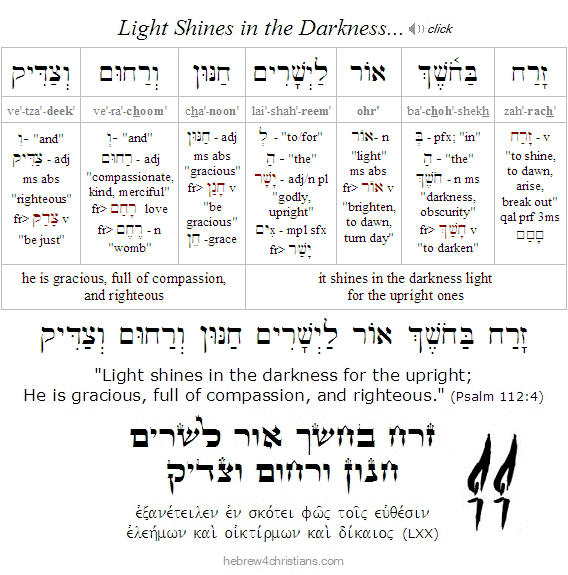 |
Recall that in our last two Torah readings (i.e., Terumah / Tetzaveh), we read how Moses was upon Mount Sinai receiving the vision of the Sanctuary (i.e., the Mishkan or "Tabernacle") and its various furnishings. In this week's portion, God commanded that all Israelite men over the age of twenty were required to pay a tax for the upkeep of the Sanctuary: "each shall give (וְנָתְנוּ) a ransom (i.e., kofer: כּפֶר) for his life to the LORD" (Exod. 30:12). The sages note that the word ve'natnu can be written backward and forward, alluding to the idea that whoever gives tzedekah (i.e., "charity") never feels the loss of having given anything away (Bava Batra). Giving benevolence produces wealth; tzedakah is an investment in your spiritual future! Indeed, "charity saves from death" - tzedakah hatzil mi-mavet: / צְדָקָה תַּצִּיל מִמָּוֶת (Prov. 10:2; 11:4). The love of God is like that: when we give it away, it becomes our own possession. The converse is also true. If we withhold helping others, eventually we may be unable to give what we would have given had we the opportunity (and consequently, we lose our blessing). In this age of economic fear, giving tzedakah is truly countercultural and faith-affirming: but the truth abides: when we give, we receive....
After this tax was defined, the LORD described some additional elements that would be required for the priestly service at the Sanctuary, namely, a copper washstand, sacred anointing oil, and incense for the Golden Altar in the Holy Place. The Lord then named Betzalel, a man "filled with the Spirit of God" to be the chief architect of the Mishkan. Before the construction would begin, however, the Lord warned the people to be careful to observe the Sabbath day. Immediately following this admonition, God gave Moses the two tablets of the Ten Commandments, which were inscribed directly by the hand of God.
Before Moses returned to the camp, however, "certain people" had talked his brother Aaron into making a golden idol which they began to worship as their "god." The LORD then told Moses of their treachery and threatened to destroy all the Israelites, but Moses interceded on their behalf. As he rushed down the mountain, with the tablets in hand, he saw the people dancing about the idol and smashed the Tablets in anger. Moses then destroyed the idol and led the Levites in slaying 3,000 of the ringleaders.
The following day, Moses returned up the mountain and begged God to reaffirm the covenant. After a 40 day period of intercession, the Lord finally told Moses to carve a second set of Tablets and to meet him again at the summit of Sinai, where He would show Moses his glory and reveal to him the meaning of His Name (יהוה). When Moses encountered the LORD in a state of brokenness and forgiveness, his face began to shine with glory - a glory that foretold of the New Covenant of God's mercy and grace to come in Yeshua.
When the people saw Moses coming down the mountain with the second set of Tablets, they understood they were forgiven and that the Covenant had been renewed. When they approached him, however, they drew back in fear, because his face was radiant with the glory of God. Moses reassured them, however, and then told them all that the Lord had commanded while he was on the mountain. When Moses had finished speaking with them, he put a veil (מַסְוֶה) over his face. From that time on, Moses wore a veil in the camp, though he removed it whenever he went before the Lord for further instructions.
Groaning of the Heart...

[ "The whole world groans and travails in pain..." (Rom. 8:22 ). ]
02.13.22 (I Adar 12, 5782) God understands the ache of your heart: "O Lord, all my desire is before you; my groaning is not hidden from you" (Psalm 38:9). Be encouraged: Until the Master of the Universe helps, the Master of the Universe will help... Amen. God will help us, and he will help us before we even know that he helps us! Therefore do not be anxious, and do not fear, for "your heavenly Father knows what you need before you ask Him" (Matt. 6:8). God will make everything new, in the name and for the sake of his great love... Meanwhile relax, because nothing is in your control anyway...
אדני נגדך כל־תאותי
ואנחתי ממך לא־נסתרה
Adonai · neg·de·kha · khol-ta·a·vah·tee
ve·an·chah·tee · mee·me·kha · loh-nees·tah'·rah

"O Lord, all my desire is before you;
my groaning is not hidden from you."

Hebrew Lesson
Psalm 38:9 Hebrew reading (click):
We often know little of the things for which we pray. We cannot see the "big picture." Words often fail us, and in our darkness we are left with an inner groan or sigh of the heart. This is a blessing, for such prayer finally renders us silent under our Heavenly Father's care...
Memento mori... A test of earnestness regarding prayer is to so lift up your soul before the LORD as if these were the very last mortal words you would utter before your death... "Out of the depths I cry out to you, O LORD; O Lord, hear my voice."
Hebrew Lesson
Psalm 130:1-2a Hebrew reading (click):
Baptism with Fire...
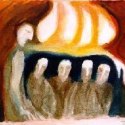
[ "If you tell me Christian commitment is a kind of thing that has happened to you once and for all like some kind of spiritual plastic surgery, I say go to, go to, you're either pulling the wool over your own eyes or trying to pull it over mine. - Buechner ]
02.11.22 (I Adar 10, 5782) "He (Yehua) will baptize you with the Holy Spirit and fire" (Matt. 3:11). The immersion into fire causes the old to be entirely transformed into something new. The Spirit of God searches and tests the heart (Jer. 17:10), helping lead the soul to surrender as an olah (עלָה), a whole burnt offering, ascends to heaven. Therefore the LORD our God is called esh okhelah (אֵשׁ אכְלָה), a Consuming Fire (Deut. 4:24; Heb. 12:29). The "tongues of fire" that rested upon the head of the disciples were an outward sign of an inward reality (Acts 2:3). Reminiscent of Jesus' metaphor of the vine and the branches (John 15:1-8), the New Testament apocrypha includes this provocative statement: "If one is near to me, he will burn. I am the fire that blazes, who is near me is near the fire; who is far from me is far from life" (Gospel of the Savior). When we turn to the Lord bekhol levavkha, with all our heart, all that we have ever known is left behind as we rise into newness of life.
אני יהוה חקר לב בחן כליות
ולתת לאישׁ כדרכיו כפרי מעלליו
a·nee · Adonai · choh·keir · leiv · boh·chein · ke·lah·yoht
ve·lah·teit · le·eesh · keed·rah·khav · keef·ree · ma·a·lah·lahv

"I the LORD search the heart and test the mind,
to give every man as to his ways, as to the fruit of his deeds."
(Jer. 17:10)

Hebrew Lesson
Jer. 17:10 Hebrew reading:
- Jer. 17:10 Hebrew page (pdf)
"And then the spirit brings hope, hope in the strictest Christian sense, hope which is hoping against hope. For an immediate hope exists in every person; it may be more powerfully alive in one person than in another; but in death every hope of this kind dies and turns into hopelessness. Into this night of hopelessness (it is death that we are describing) comes the life-giving spirit and brings hope, the hope of eternity. It is against hope, for there was no longer any hope for that merely natural hope; this hope is therefore a hope contrary to hope." - Soren Kierkegaard
Mitzvah Chadashah - מִצְוָה חֲדָשָׁה

[ "You shall love..." Most of us have trouble loving God, our neighbors, our friends, our spouses, our children, and even ourselves -- let alone our enemies! Indeed, true love is always a miracle, the blessing from heaven. ]
02.11.22 (I Adar 10, 5782) "A new commandment I give to you, that you love one another (ἀγαπᾶτε ἀλλήλους): just as I have loved you, you also are to love one another" (John 13:34). What's new about this mitzvah is assuredly not the duty to love God and one's neighbor, since Yeshua had already affirmed the Shema and directly linked the love of God with our duty to care for others (see Matt. 22:37-39). No, what's new here is Yeshua Himself - his sacrificial grace, his unconditional acceptance, his "reckless" mercy, his everlasting atonement, and the abounding love of God we find exclusively in him. The Torah of Yeshua is the absolute reverence of human life itself, where each soul is understood as being of infinite significance before the very Throne of God Himself.
This also explains why God even commands us to love our enemies (Luke 6:27-36). We love our enemies not because we hope they will eventually change (i.e., not by pretending they are not really our enemies), nor by contriving a mode of mawkish sentimentality, but solely because love is an ongoing decision to bestow dignity and respect to all people...
Hebrew Lesson
Gen. 1:26a Hebrew reading:
A Blessed Yearning....
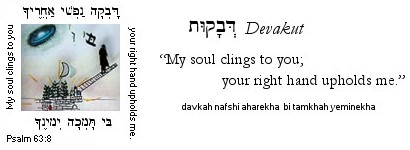
[ "All the gates of heaven may be closed except the 'gate of tears,' as it is stated: "Hear my prayer, Lord, and give ear to my pleading, keep not silence at my tears" (Berachot 32a). ]
02.11.22 (I Adar 10, 5782) There is an "upside-down way" of experiencing heavenly growth and lasting prosperity, though it is not a very popular one: "It was good for me that I was afflicted, that I might learn your decrees" (Psalm 119:71). Affliction is a teacher... There is a blessing when you feel like you are "falling to pieces" because then you can know "in your bones" that only God can hold you together... Affliction serves as a "leash" of sorts, keeping us close to God's side, helping us number our days to attain a heart of wisdom (Psalm 90:12). As Yeshua said: Ashrei aniyei ha'ruach: "blessed are the poor in spirit," ki la'hem malchut ha'shamayim: "for theirs is the kingdom of heaven" (Matt. 5:3). Such inner poverty is a disguised grace, and the desire for healing reveals the Spirit's invitation. Kotzer ruach (קוֹצֶר רוּחַ) is a phrase that means being short of breath, panting for the Divine Presence, yearning for God. When you are wounded, desperate, and find nothing else within you for life, then you are able to see clearly and to receive the miracle of the divine comfort. "I know, O LORD, that your judgments are right, and that in faithfulness you have afflicted me. Let your steadfast love comfort me according to your promise to your servant. Let your tender mercies come to me, that I may live; for your Torah is my delight" (Psalm 119:75-77).
Hebrew Lesson
Psalm 119:71 Hebrew reading:
Like-for-Like Revelation...

[ "And God said, 'Love your enemy,' so I obeyed Him and loved myself." (Khalil Gibran) ]
02.10.22 (I Adar 9, 5782) It has been said that grace is getting what you don't deserve, whereas mercy is not getting what you do... Yeshua said, "Blessed are the merciful, for they shall receive mercy" (Matt. 5:7). This is not a reciprocal law like karma, i.e., you get in return what you first give, since we cannot obtain God's mercy as reward for our own supposed merit (Rom. 4:4). No, we are able to extend mercy to others when we are made merciful ("full of mercy"), that is, when we first receive mercy from God. After all, you can't give away what you don't have, and if we have no mercy for others, it is likely that we have not received it ourselves, as the parable of the Good Samaritan reveals (Luke 10:25-8). Your forgiveness is your forgiveness: as you forgive, so you reveal your heart. What you do comes from what you are, not the other way around... We are first transformed by God's grace and then come works of love. We are able to judge others mercifully, with the "good eye," because we come to believe that we are beloved by God.
The pattern therefore abides: First you realize you are broken, impoverished of heart, and you therefore mourn over your sinful condition. Then you hunger and thirst for God's righteousness, for his healing and deliverance, and you learn to trust the mercy of God, that is, you come to accept that you are accepted despite your unacceptability. "And God said, 'Love your enemy,' so I obeyed Him and loved myself" (Khalil Gibran). You begin to show yourself mercy; you learn to "suffer yourself" and forgive your own evil, and then you extend this mercy to others who are hurting around you... The failure to extend mercy, to demand your "rights" or hold on to grudges, implies that you are relating to God as Judge rather than as Savior (James 2:13). If we condemn what we see in others, we have yet to truly see what is within our own hearts; we have yet to see our desperate need for God's mercy for our lives. If you don't own your own sin, your sin will own you. Being merciful is a response to God's love and therefore is essential to genuine teshuvah... Ask the LORD to help you let go of the pain of the past by being full of mercy toward yourself and others.
Hebrew Lesson:
Psalm 18:25 Hebrew reading:
Names upon his heart...
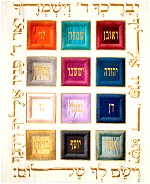
[ The following is related to this week's Torah reading, parashat Tetzaveh... ]
02.10.22 (I Adar 9, 5782) The two onyx stones attached to the shoulder pieces of the High Priest's vest (i.e., ephod: אֵפד) were meticulously inscribed with the names of the twelve tribes of Israel: "Take two onyx stones, and engrave on them the names of the sons of Israel, six of their names on the one stone, and the names of the remaining six on the other stone, in the order of their birth. As a jeweler engraves signets, so shall you engrave the two stones with the names of the sons of Israel. You shall enclose them in settings of gold filigree. And you shall set the two stones on the shoulder pieces of the High Priest's vest (i.e., ephod: אֵפד), as stones of remembrance for the sons of Israel. And Aaron shall bear their names before the LORD on his two shoulders for remembrance" (Exod. 28:9-12).
Likewise the twelve precious stones arrayed on the breastplate (i.e., choshen: חשֶׁן) that hung over the front of the High Priest's robe were inscribed with the names of the twelve tribes of Israel: "You shall make a breastpiece of judgment (i.e., choshen ha'mishpat: חשֶׁן הַמִּשְׁפָּט) in skilled work... and you shall set in it four rows of three precious stones enclosed with gold in their settings. There shall be twelve stones with their names according to the names of the sons of Israel. They shall be like signets, each engraved with its name, for the twelve tribes... "So Aaron shall bear the names of the sons of Israel in the breastpiece of judgment upon his heart, when he goes into the Holy Place, to bring them to regular remembrance before the LORD" (Exod. 28:15-29).
The sages comment that just as a father carries his young child on his shoulders, or a shepherd his lamb, so the High Priest carried his people before the LORD in intercession. Similarly, at the cross Yeshua carried our names on his shoulders, bearing the burden of our sins on on breast as he cried out in prayer for us before the Father. As our great High Priest of the New Covenant, Yeshua "bore the judgment of the people upon his heart" as he made intercession for them (Isa. 53:12; Rom. 8:34).
Hebrew Lesson
Isa. 53:12b Hebrew reading:
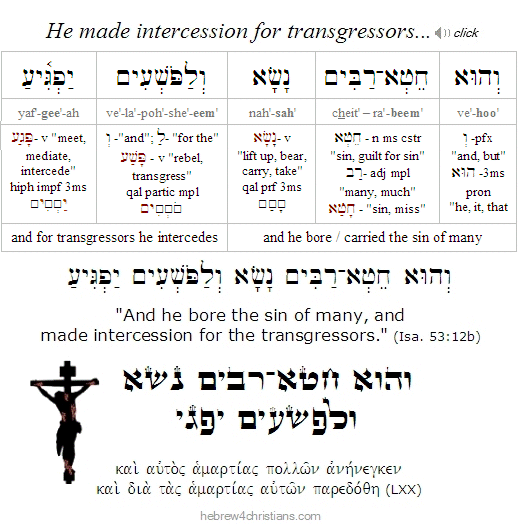 |
Believing in Love...
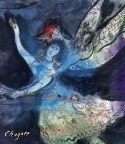
02.09.22 (I Adar 8, 5782) In the Torah we read: "But now, Israel, what does the LORD your God ask from you ... but to love him with all your heart and with all your soul?" (Deut. 10:12). But how are we able to love God be'khol levavka (בכל־לבבך) – "with all our heart" – and be'khol nafshekha (ובכל־נפשׁך) - "with all our soul," apart from healing of the brokenness that makes our hearts divided and sick? That is what the redemption from Egypt was about: we were personally chosen by God, redeemed by his grace, led out from from cruel bondage, only to be led into the desert, away from the world, where we slowly began to understand that we were valued, cared for, and beloved of God. We believed in the possibility of promise, of covenant... Only then could we hear the request from heaven: "Now love Me..." In other words, we can only truly love God by knowing we are beloved by God, and the invitation to love him is a response of his great passion for you (1 John 4:19). That's the message of the gospel as well: Accept that you are accepted in the heart of the Beloved (Eph. 1:4-6).
Hebrew Lesson
Psalm 143:7 Hebrew reading:
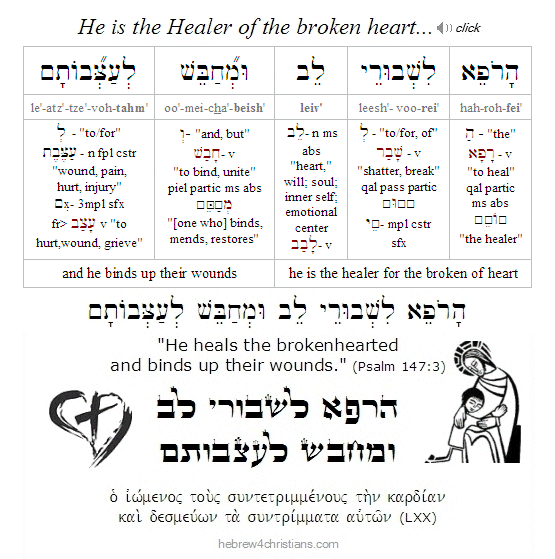 |
Priests of His Light...
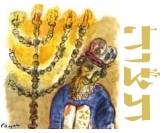
02.09.22 (I Adar 8, 5782) Our Torah for this week (i.e., parashat Tetzaveh) describes the ceremony of consecration to the priesthood. We are chosen to be a "kingdom of priests," a set-apart people, and a light to the nations (Exod. 19:6; Isa. 42:6; 1 Pet. 2:9). Note the very first responsibility given to the priests was to care for the ner tamid (נר התמיד), the light of the Menorah (Exod. 27:20-21), which represents our consciousness of the Divine Presence (Psalm 18:28; 36:9). The challenge we all face is to remain "in the light as God is in the light" and not to be seduced by the world of fleeting appearances (Isa. 2:5; 1 John 1:7, 2:17). God's eternal light radiates through all things (Isa. 6:3; Psalm 139:11-12), just as the great "yehi ohr" (יְהִי אוֹר) - "Let there be light" - is the first word spoken to creation (Gen. 1:3). To be a priest means being so filled with the truth that you radiate peace; your inner light shines and you glorify your Father in heaven (Matt. 5:16). That is how we draw others to the truth, by receiving the beauty of the LORD (Psalm 27:4).
Of course being a "witness to the light," that is, being a "priest," does not mean you are a "perfect person" who walks about with a blissed-out attitude despite the various trials and tests we all face in this life. No, we all still sin, and we therefore need to confess the truth of our condition to abide in the light (1 John 1:9; James 5:16). Like everything else in Scripture, here we encounter paradox, as Yeshua taught: "Blessed are the impoverished in spirit (πτωχοὶ τῷ πνεύματι), for theirs is the kingdom of heaven; blessed are the ones who mourn (οἱ πενθοῦντες), for they shall be comforted; blessed are the meek (οἱ πραεῖς), for they shall inherit the earth" (Matt. 5:3-5). Yea, "God chose what is foolish in the world to shame the wise; God chose what is weak in the world to shame the strong, God chose what is low and despised in the world, even things that are not, to bring to nothing things that are, so that no human being might boast in the presence of God" (1 Cor. 1:27-29).
The Hebrew word for priest (i.e., kohen: כּהֵן) may come from the word ken (כֵּן) meaning "yes" and the word kivun (כִּווּן) meaning to "direct" or "lead," implying that a priest helps direct a person toward affirming the Reality and Truth of God. The role of a priest is to draw us to God, then, but how is that possible if the mediator cannot genuinely understand our sorrows and struggles? What draws others to God is his love, but how can we come to believe in that love were it not for the priesthood of the leper, the priesthood of the outcast, the priesthood of the reject? Even so Yeshua was afflicted with our infirmities and therefore sympathizes with our brokenness and frailty (see Heb. 4:16).
As a priest of brokenness, you are called to be a wounded healer, and you can testify of God's saving grace and love for you despite your sorrow, anger, weaknesses, and failures... Accepting God's compassion for you - just as you are - allows you to show grace and kindness to others who are also hurting, and therefore you can serve as a priest of God.
אלהים יחננו ויברכנו
יאר פניו אתנו סלה
e·loh·heem · ye·choh·nei'·noo · vee·vah·re·khei'·noo
yah·eir · pah·nahv · eet·tah'·noo · se'·lah

"May God be gracious to us and bless us
and make his face to shine upon us, Selah"
(Psalm 67:1)

Hebrew Lesson
Psalm 67:1 Hebrew reading:
Be encouraged, friends... "For the commandment is a lamp and Torah is light, and the reproofs of discipline are the way of life" (Prov. 6:23). Here we may understand the "reproofs of discipline" as the (ongoing) process of consciously turning away from darkness (of fear, anger, etc.) to the behold the divine light. We have to start here, after all... The way of life is teshuvah (repentance, turning to God), which is a painful process to the lower nature, but is necessary to walk in the light. Confession brings light into our hearts (James 5:16; 1 John 1:5-9), and the end of our struggle is healing and life. Amen.
Hebrew Lesson
Prov. 6:23 Hebrew reading:
The Blessing of Gratitude...

02.09.22 (I Adar 8, 5782) The Hebrew term for gratitude is "hakarat tovah" (הַכָּרַת טוֹבָה), a phrase that means "recognizing the good." A grateful person looks at things with the "good eye," seeking the hidden good in all circumstances. Gratitude is the product of joy (χαρα) obtained from the gift of being conscious of God's grace (χαρις).
When we realize that everything we have is a gift from above, we are humbled at our manifold blessings. "Gratitude turns what we have into enough, and more." The manna that fell from heaven tasted wonderful to those who were grateful, but tasteless to those who were dissatisfied. Godly contentment is the essence of worship: "If the only prayer you say in your life is 'Thank you,' that would suffice" (Meister Eckhart). Thankfulness is the result of a heartfelt understanding of the gospel, and worship expresses the appreciation for the miracle of God's love and kindness to us given in Yeshua.
Freely we have been given, so freely we should give. William James said that the deepest craving of human nature is the need to be appreciated, and therefore expressing appreciation to others encourages and upbuilds their hearts. Caring for others, honoring the sanctity and blessing of their lives, and making time to quietly listen to them are expressions of the worship of the Lord.
So let us remember to count our blessings, chaverim, and to "count them one by one." And may we be lavish in our thanks to the Lord for his great kindness and mercy that he has so graciously bestowed upon us in Yeshua our Lord. Amen.
Hebrew Lesson
Psalm 136:3 Hebrew reading:
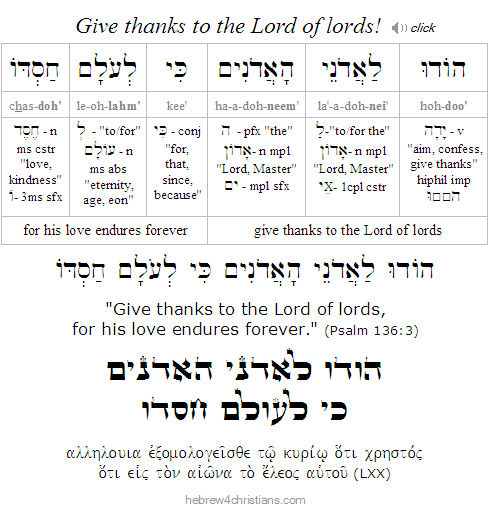 |
God's covenant with us in Messiah means he will be faithful in forgiveness, and we trust in that because it is his faithfulness that saves us, and not our own. Thank God that our own sin cannot hinder the glorious outworking of his salvation for our souls...
Hebrew Lesson
Psalm 32:1 Hebrew reading:
Knowing God's Love for You...
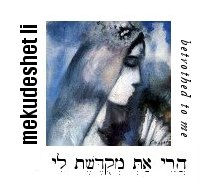
02.08.22 (I Adar 7, 5782) To think abstractly that "God is love" is not particularly comforting, for if God loves everyone and everything indiscriminately, if he cannot do otherwise, then where is personal comfort found in that? The deeper question is not whether God loves everything, but whether you believe that He loves you - whether you earnestly believe that you are welcome and accepted into his heart. We need to hear the divine voice saying: "You are my beloved child, in whom I am well pleased." And this is a great mystery - that God "needs" your love, that is, it is the yearning of His heart for you to know his love and to partake of his glory (John 17:24).
Hebrew Lesson
Song of Songs 1:15 reading:
Awakening to Life...
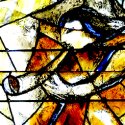
02.08.22 (I Adar 7, 5782) We shouldn't be surprised that most people refuse to wake up and realize the profound spiritual danger of their lives – namely, the imminent reality of personal judgment and death – since the Scriptures declare that people willingly suppress the truth and "celebrate" untruth (see Rom. 1:20-32). Soren Kierkegaard commented: "The world wants to be deceived... intensely, more intensely, more passionately perhaps than any witness to the truth has fought for the truth, the world fights to be deceived; it most gratefully rewards with applause, money, and prestige anyone who complies with its wish to be deceived" (Judge for Yourself). Indeed, any distraction that seduces people to deny reality will suffice for the sake of untruth... The Scriptures state: "And this is the judgment: the light has come into the world, and people loved the darkness rather than the light because their works were evil. For everyone who does wicked things hates the light and does not come to the light, lest his works should be exposed. But whoever does what is true comes to the light, so that it may be clearly seen that his works have been carried out in the power of God" (John 3:19-21).
It is vital to remember that one of the main tactics of the enemy of our souls is to cast a spell over us induce a sense of forgetfulness and apathy... Satan wants you to forget that you are a child of the King. The entire venture of teshuvah (repentance) presupposes that you are created be'tzelem Elohim - in the image of God - and therefore you have infinite value and dignity. This is all the more evident in light of the awesome ransom that Yeshua paid to reconcile your soul with God. Understand: the judgment is so great because the love is so great... So what is one of the greatest of sins you can commit in your life? To forget what God has done for you... Remaining asleep, unmindful of your true identity is one of the most tragic things of life. Therefore the blast of the shofar is meant to jolt us awake... We are to remember who we really are -- to remember that God is our King. The person who says, "Tomorrow I will do teshuvah" really is saying, "Not now." And then tomorrow comes and he says, "Not now." And in this way his entire life passes by, saying, "Not now." Finally one day he wakes up only to find himself already dead.
Kierkegaard once said: "To become sober is: to come to oneself in self-knowledge and before God as nothing before him, yet infinitely, unconditionally engaged." This is the earnestness of wide-awake faith. May God help us wake up today to the Reality that is set before us. The "End of the World" is the day you will die and give account of how you lived before the Truth of Eternity -- and there will be no more rationalizations, no more evasions, no excuses, no pretense of being a victim, that will bear on the question before the bar of heaven....
Hebrew Lesson
Hosea 14:1 Hebrew lesson:
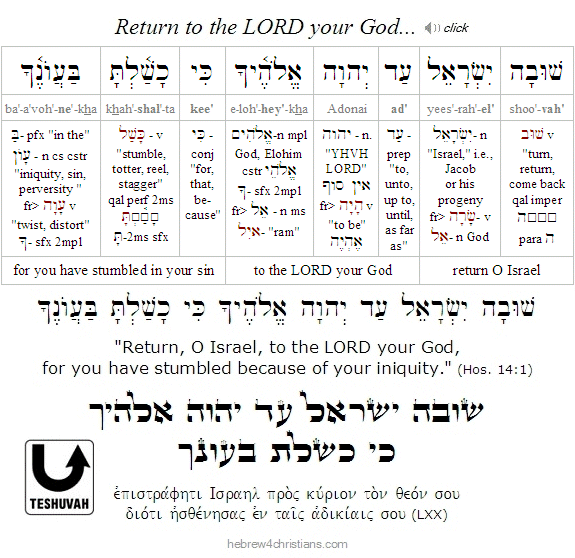 |
Education for Eternity...

02.07.22 (I Adar 6, 5782) "Know within your heart that, as a parent disciplines his child, so the LORD your God disciplines you" (Deut. 8:5). This verse expresses the idea of "musar" (מוסר), or moral education intended to develop godly character within us. "My son, despise not the chastening (i.e., musar) of the LORD; neither be weary of his correction (i.e., tokhechah). For whom the Lord loves he corrects; even as a father the son in whom he delights" (Prov. 3:11; see also Heb. 12:5-6). In light of Torah we infer that God disciplines us because we are his children, for the sake of our growth and maturity, and not for vindictive reasons. God's correction indicates that he feels responsible for our character development, as a good father feels responsible for the character development of his child. Correction from the Lord is ultimately "soul-building," since it enables us to be partakers of His holiness -- and is grounded in His love and concern for us as our Heavenly Father (see Heb. 12:5-11). Hang in there, friend. "For the moment all discipline seems painful rather than pleasant, but later it yields the peaceful fruit of righteousness to those who have been trained by it" (Heb. 12:11). May God help us in our "education for eternity."
וידעת עם־לבבך
כי כאשׁר ייסר אישׁ את־בנו
יהוה אלהיך מיסרך
ve·yah·da·tah · eem-le·vah·ve'·kha
kee · ka·a·sher · ye·ya·seir · eesh · et-be·noh
Adonai · E·loh·hey'·kha · me·ya·se·re'·ka

"Know within your heart that, as a parent disciplines his child,
so the LORD your God disciplines you" (Deut. 8:5)

Hebrew Lesson
Deut. 8:5 Hebrew lesson:
Prayer for just one thing...
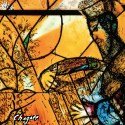
[
"Remember that the lives of others are not your business, they are God's business, and even your own life is not your business, it also is God's business. Leave it to God... It can become a life-transforming thought: unclench the fists of your spirit and take it easy." - Buechner ]
02.07.22 (I Adar 6, 5782) King David says in Psalm 27:4, "One thing have I asked of the LORD, that will I seek" (אַחַת שָׁאַלְתִּי מֵאֵת־יְהוָה אוֹתָהּ אֲבַקֵּשׁ). Notice immediately that David asked for just one thing – not many things. He did not come with a litany of requests. He was not "double minded." As Kierkegaard said, "purity of the heart is to will one thing." David asked for the gift of focus and the pursuit of truth. He desired the "pearl of great price." Note also that the verb translated "I will seek" (avakesh) comes from the verb bakash (בָּקַשׁ) meaning "to wish" or "to desire." The verse could therefore be read as, "The one thing I ask from the Lord is for godly desire – for the will to "behold the sweetness of the Lord, and to inquire in His Presence." This is a prayer for the highest we may attain. The "one thing" David asked for was a heart made alive to perceive the wonder of God.
Hebrew Lesson
Psalm 27:4 lesson with drasha:
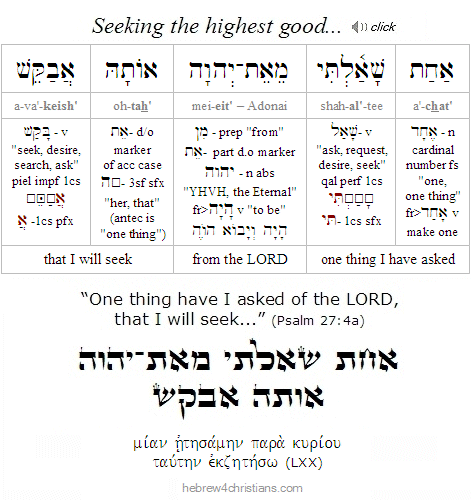 |
Tending God's Light:
Parashat Tetzaveh...

02.06.22 (I Adar 5, 5782) Shavuah tov, friends. Last week's Torah reading, parashat Terumah (תרומה), explained that God had asked for a "donation" (i.e., terumah) from the people for the sake of creating a portable, tent-like sanctuary called the Mishkan (משׁכּן), or "Tabernacle." God then showed Moses the pattern (תּבנית) according to which the Mishkan and its furnishings were to be made. First the Ark of the Covenant (ארון בּרית־יהוה) and its golden cover (called the kapporet: כּפּרת) would occupy an inner chamber of the tent (אהל) called the Holy of Holies (קדשׁ הקדשׁים). Within an adjoining chamber of the tent called the Holy place (הקדשׁ), a sacred Table (שׁלחן) would hold twelve loaves of unleavened bread (לחם פּנים) and a seven-branched Menorah (מנורה) would illuminate the tent. God gave precise dimensions of the tent with the added instruction to separate the Holy of Holies by a hanging veil called the parochet (פּרכת). The entire tent was to have a wooden frame (מסגּרת) covered by colored fabric and the hide of rams and goats. Outside the tent an outer court (חצר) was defined that would include a copper sacrificial altar (מזבח נחושת) and water basin (כּיּור נחשׁת). The chatzer, or outer court, was to be enclosed by a fence made with fine linen on silver poles with hooks of silver and sockets of brass.
 |
Our Torah reading for this week, parashat Tetzaveh (תצוה), continues the description of the Mishkan, though the focus shifts to those who will serve within it, namely the kohanim (כּהנים), or the priests of Israel. First Moses was instructed to tell the Israelites to bring pure olive oil (שׁמן זית זך) for the lamps of the Menorah, which the High Priest (הכּהן הגדול) was instructed to light every evening in the Holy Place. Next God commanded Moses to ordain Aaron and his sons as priests and described the sacred garments (בּגדי־קדשׁ) they would wear while they were serving in the Mishkan.
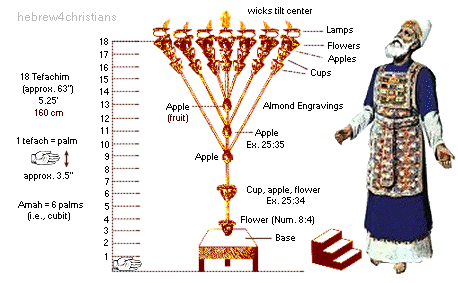 |
All priests were required to wear four garments – linen breeches, tunics, sashes, and turbans, but in addition to these the High Priest (Kohen Gadol) was to wear a blue robe that was decorated with pomegranates and golden bells. Over this robe, an ephod (אפוד) – an "apron" woven of gold, blue, purple, and crimson – was to be worn, upon which was attached a "breastpiece" (חשׁן) inlaid with precious stones inscribed with the names of the 12 tribes of Israel. The ephod also contained a pouch holding two unique gemstones called the urim v'tummin (אורים ותומים), usually translated as "lights and perfections." According to the Targum Jonathan, when a matter was brought to the High Priest for settlement, he would sometimes hold the urim (from אוֹר, "light") and tummin (from תָּם, "integrity" or "completeness") before the Menorah in the Holy Place and the Shekhinah would light up various letters inscribed on the gemstones to reveal the will of God. Finally, the High Priest would wear a golden plate (i.e., tzitz zahav: צּיץ זהב) engraved with the words, "Holy to the LORD" (קדשׁ ליהוה) upon the front of his turban.
The priests were to be ordained in a seven-day consecration ceremony that involved washing, dressing, and anointing them with oil and blood, followed by the offering of sacrifices. The priests were further instructed to present burnt offerings twice a day upon the copper altar. The portion ends with a description of the Golden Altar (מזבּח הזהב) also called the Altar of Incense (מזבּח הקטרת) upon which incense (i.e., ketoret: קטרת) was offered twice a day by the priests when the Menorah lamps were serviced. In addition, the blood of atonement was to be placed on its corners once a year, during the Yom Kippur ritual.
Saved by Hope...

[ Hope is about the possible, despair is about the impossible, and therefore despair is the precondition for the miracle of salvation, because it confesses the impossibility of salvation apart from the miracle of love... ]
02.04.22 (I Adar 3, 5782) The word of God teaches that we are saved by hope (Rom. 8:24). Such hope affirms that the divine healing of the Savior pervades all things and we can rejoice in the blessing of eternal life. Despair, on the other hand, sees no way out. Despair is a dark conviction of hopelessness that leads to sorrow, depression, and anger. It dwells on what apparently cannot be changed and therefore concludes that change is not possible. The way of despair teaches that you are ultimately victim. Hope, on the other hand, believes that change is genuinely possible - even in the worst of circumstances - and therefore it refuses to let despair have the last word. Hope wrestles through the darkness and refuses to let go until the blessing comes. It perseveres; it endures; and it overcomes: As the prophet Job testified in his grave darkness: "For I know that my Redeemer lives, and at the latter day he will stand upon the earth. And even after my skin has been destroyed, yet in my flesh I will see God - whom I shall see for myself, and my eyes shall behold, and not another. My heart faints within me!" (Job 19:25-27).
Friend, if you are in despair, turn open your heart to hope. Believe the "impossible." Quiet your heart and listen for the invitation: "Come unto me, you who suffer, and I will give you rest." Faith gropes in the darkness, reaches out in hope, and finds courage in the conviction that the lonely wound of your heart, the thought that you are unwanted, unimportant, and unacceptable, is not the truth about who you really are, but on the contrary, you are terribly loved, forgiven, and welcomed before God, and that there is place prepared for you, an eternal place of home, life, and blessing. Do not let despair consume your heart in grief. "All shall be well, and all manner of thing shall be made well." Can you believe it? Are you willing to open your heart to the possibility of God's love that will make you whole?
Hebrew Lesson
Job 19:25-26 Hebrew reading:
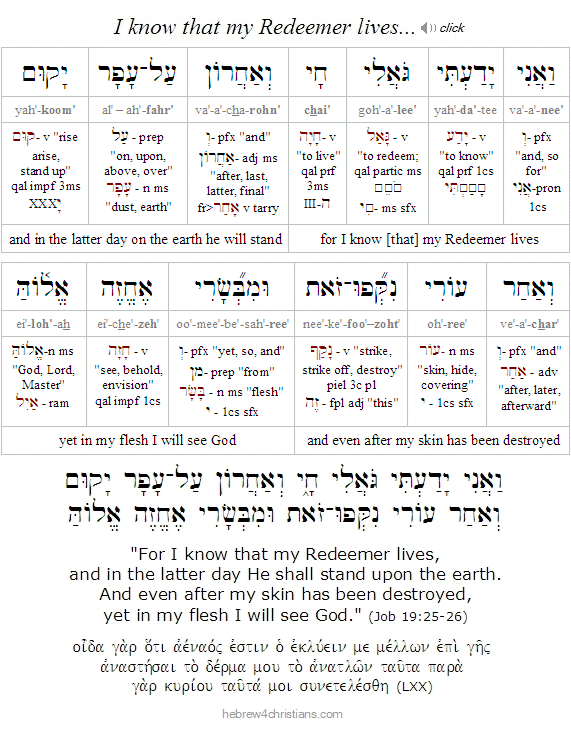 |
Teshuvah of Transformation
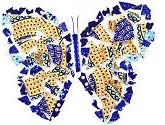
02.04.22 (I Adar 3, 5782) Our Lord taught that teshuvah (תְּשׁוּבָה), or "repentance," is more like spiritual rebirth than moral reformation: "Unless you are born from above (ἄνωθεν), you cannot see the kingdom of God" (John 3:3). This implies that we experience a radical shift in the way we "live and move and have our being" (Acts 17:28). The Greek word metanoia (μετάνοια) comes from a verb that means more than simply "changing your mind," but rather refers to the process of being transformed, or "metamorphosized," into a new kind of being -- like a worm that is changed into a butterfly that takes to the bright sky. Teshuvah, then, means turning (i.e., shuv: שׁוּב) to receive your new identity, your new life, in Messiah. To "repent" is to escape from the default mode of life to enter into a new realm of existence itself. It is an abandonment of the old life and nature – those self-serving assumptions driven by fear – so that we can walk in wonder and newness of life. So renew your minds, chaverim! Be young and tender at heart. Though the outer may self waste away, the inner self empowered and sustained for this very day and hour. Shabbat shalom...
"O Lord, grant us grace to desire thee with all our hearts, that so desiring, we may seek and find thee, and so finding thee, may love thee, and loving thee may hate those things from which you have redeemed us." Amen. (Anselm of Canterbury)
Hebrew Lesson:
Psalm 51:10 Hebrew reading:
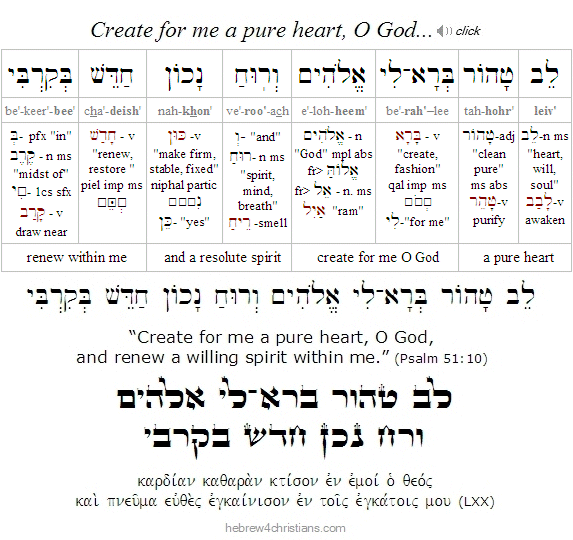 |
Rich toward Heaven...

02.04.22 (I Adar 3, 5782) In our Torah portion we read: "Take for Me an offering…" (Exod. 25:2). The midrash says that this teaches that if you give tzedakah (charity) to those in need, you take God to yourself, as it is written: "For the LORD stands to the right of the needy" (Psalm 109:31), and "Whoever is generous to the poor lends to the LORD, and he will repay him for his deed" (Prov. 19:17). It may seem counter-intuitive to carnal and worldly reasoning, but when you give to others, you will receive even more in return (Mal. 3:10). Indeed the person who seeks treasure for himself is not rich toward God, since we can only keep what we give away in kindness (Luke 12:21). As our Lord taught: "Give, and it will be given to you. Good measure, pressed down, shaken together, running over, will be put into your lap. For with the measure you use it will be measured back to you" (Luke 6:38).
Hebrew Lesson:
Prov. 19:17 Hebrew reading:
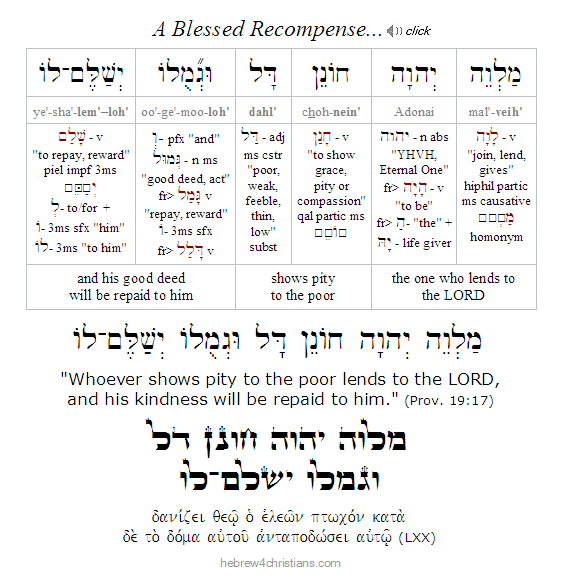 |
"Take for me an offering..." (Exod. 25:2). The Torah here indicates that the LORD is our great Kohen Gadol (High Priest), for He asked for terumah (an offering or contribution) just as the earthly kohen was given terumah from the yearly yields of the farmers. Shabbat shalom!
The Miracle of New Life...
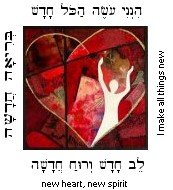
02.04.22 (I Adar 3, 5782) Only God can help us let go of the "self life" and to be set free from the painful tyranny of what we naturally are; only the LORD can truly save us from ourselves. The old nature is never "reformed" by religion but is put to death by a supernatural act of God, as it says: "I have been crucified (συνεσταύρωμαι) with Messiah; it is no longer "I" who live, but Messiah who lives in me. And the life "I" now live in the flesh "I" live by faith in the Son of God, who loved me and gave himself for me" (Gal. 2:20). By faith we trust that we already have been crucified with him, just as by faith we trust that we already have newness of life, though all this is only "theoretical" unless and until the Spirit of God makes it real in our lives: "The wind blows where it wishes, and you hear its sound, but you do not know where it comes from or where it goes. So it is with everyone who is born of the Spirit" (John 3:8). Only the LORD can put a new heart within us; only God can make the new "I" walk in the flesh; only the Spirit can breathe upon dry bones raised from the dust to make them live (Ezek. 37:5).
We believe not only that Yeshua died as our substitute for sin - saving us from its penalty - but also that our old nature has died with him - delivering us from its power: "We know that our old self was crucified with him in order that the body of sin might be brought to nothing, so that we would no longer be enslaved to sin" (Rom. 6:6). "For as many of you as were baptized into Messiah have put on the Messiah" (Gal. 3:27) [by "baptism" think identification, not some ritual act]. May the LORD our God make the truth of what He has done for us alive and breathing freely within us -- by the power of his salvation in Yeshua!
Hebrew Lesson:
Ezek. 36:26a Hebrew reading:
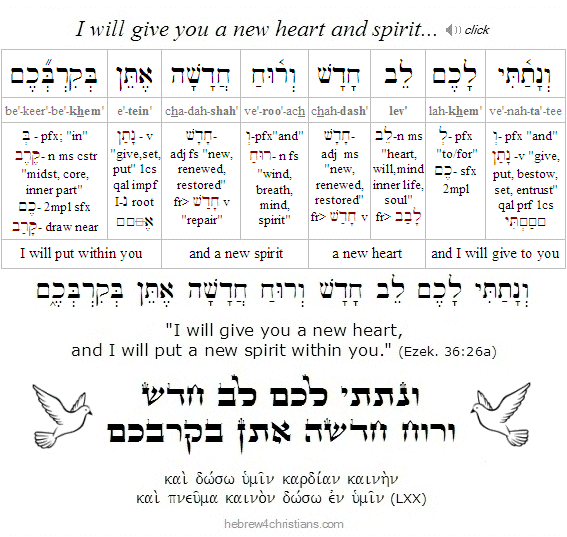 |
Hidden Treasure...

02.04.22 (I Adar 3, 5782) Our Savior sees through the temporal problems of illness, weakness, moral failures, etc., to perceive the great underlying value of the person. God's love sees the hidden beauty, worth, and sanctity of your life. "The kingdom of heaven is like a merchant in search of fine pearls, who, on finding one pearl of great value, went and sold all that he had and bought it" (Matt. 13:45-46). You may be tempted to identify with the merchant and regard this parable as a challenge for you to give up everything to obtain the surpassing worth of the kingdom of heaven, but another way to understand it is to see God as the merchant, the central character of the story.... Instead of you paying the great price for the pearl, turn the story around: God pays the price - and you are regarded as His choice pearl! You are a treasured possession, the "apple of God's eye..."
Hebrew Lesson:
Deut. 7:6b Hebrew reading:
Near the Brokenhearted...

02.03.22 (I Adar 2, 5782) Of the Messiah it is written, "A bruised reed shall he not break, and the smoking flax shall he not quench" (Isa. 42:3)... People conscious of their feebleness and who have been crushed because of it are likened to "bruised reeds," and he [the Messiah, the Savior] shall bring no injury to them... As it is written, "The LORD is near to the brokenhearted (נִשְׁבְּרֵי־לֵב) and saves the crushed in spirit." Indeed, the LORD binds up the broken of heart and gives liberty to those in captivity (Isa. 61:1). "A smoking flax shall he not quench" -- neither will the LORD snuff out an unsteady flame ready to expire, but will tend to it with special oil to cause it to burn more brightly.
Hebrew Lesson:
Psalm 34:18 Hebrew reading:
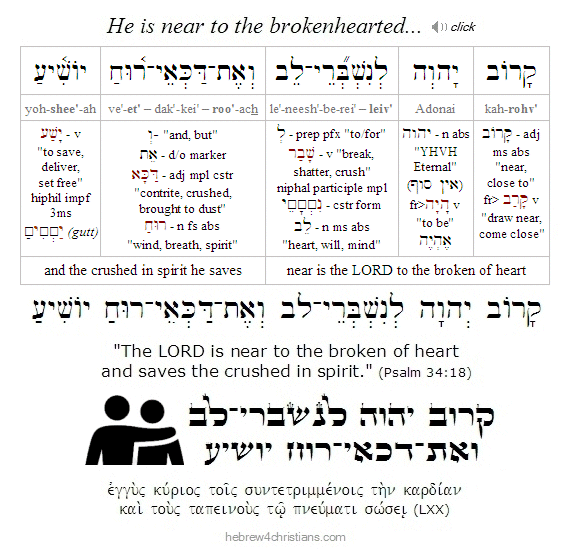 |
Spirituality often enough involves a sense of irremediable brokenness, a feeling that you are not whole, that you are a mess, and that your need for God's healing is constant and relentless... Contrary to the ideals of proud humanism, spirituality is a state of "blessed neediness," of being "poor in spirit," that aches with inner desperation for God's power of healing. Those who humbly cry out to the LORD understand their great need for deliverance, "Woe is me, for I am ruined..." (Isa. 6:5). As Yeshua said, "Everyone who exalts himself will be humbled, but the one who humbles himself will be exalted" (Luke 18:14).
Our Lord Yeshua testified: "The Son of Man came to seek and to save the lost" (Luke 19:10), and therefore He is found in the midst of the leper colonies of the hurting, the forgotten, and the rejected. As the "Man of Sorrows" (i.e., ish makhovot: אִישׁ מַכְאבוֹת) he understands the language of our pain (Isa. 53:3).
"For God so loved the world" that he became entirely unesteemed -- "despised and rejected of men, a man of pains, acquainted with sickness" – so that he could taste rejection, sorrow, pain, and death for every man (John 3:16; Heb. 2:9). "For our sake God made Him to be sin who knew no sin, so that in Him we might become the righteousness of God" (2 Cor. 5:21). It was the love of God that put Yeshua on the Cross, and because of Yeshua, God forever exchanges our inner hell and abandonment with His everlasting love and acceptance. It is finished, and may His great Name be praised in all the earth...
 |
Come just as you are...
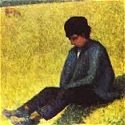
02.03.22 (I Adar 2, 5782) Some people seem to think that we first must repent and then we will encounter the Lord, but it's actually the other way around: we first encounter the Savior and then we learn the meaning of repentance. Thus Paul's eyes were opened after he was first blinded by the light (Acts 9:3-6). Likewise, it is only after we have met the Lord that we begin to understand our own blindness of heart, but as learn to see more clearly, we encounter more and more of his love (Rom. 5:20). As Yeshua said, "My yoke is pleasant (χρηστὸς) and my burden is light (Matt. 11:30). Teshuvah, then, is a progressive and ongoing process of awakening, as we learn to love God and to accept ourselves, despite our struggle with sin. As St. Anselm once prayed: "O Lord, grant us grace to desire thee with all our hearts, that so desiring, we may seek and find thee, and so finding thee, may love thee, and loving thee may hate those things from which you have redeemed us." Amen.
We encounter the Lord "just as we are," by means of his gracious intervention in our lives, and so we continue to live by faith in God's grace (indeed, what we call "sanctification" is often just "catching up" with the miracle of his revelation to us). And we always come to God "just as we are," since we are never more than what we are in the truth: χάριτι δὲ θεοῦ εἰμι ὅ εἰμι- "by the grace of God I am what I am," as Paul said. "For all things come from You, and from your hand we give back to you" (1 Chron. 29:14). Therefore the Spirit says, "Come unto me just as you are, or you may never come at all...."
Hebrew Lesson:
1 Chron. 29:14b Hebrew reading:
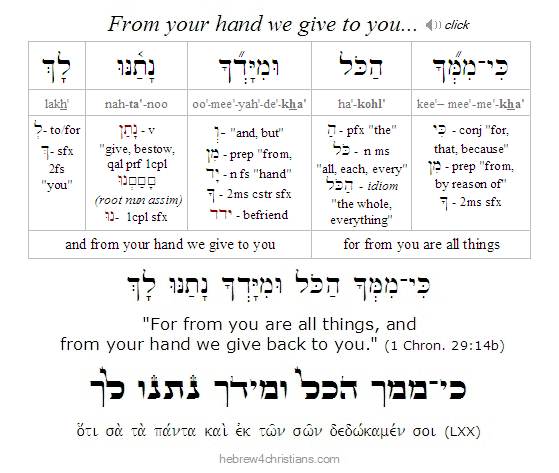 |
A prayer to the One calling you to come: "I come to you just as I am - needy, sick within, weary, and broken... I come seeking your love; I come because you invited me to come: I open my heart, such as it is, to you; please join me here, in this place of my need, in this place of pain, and wrap me your comfort. I can only love you as I know your love, Lord Yeshua, so please help me to know your love in the truth. Amen."
Thoughts on the Parasha:
Blood over Broken Tablets...

[ The following is related to this week's Torah reading, parashat Tetzaveh... ]
02.02.22 (I Adar 1, 5782) The earthy Tabernacle (i.e., Mishkan) and its furnishings were "copies" of the heavenly Temple and the Throne of God Himself (Heb. 10:1). Moses was commanded to make the Sanctuary according to the "pattern" revealed at Sinai (Exod. 25:9). As it is written in our Scriptures, "For Messiah has entered, not into holy places made with hands, which are representations (ἀντίτυπος) of the true things, but into heaven itself, now to appear in the presence of God on our behalf" (Heb. 9:24).
The centermost point (heart) of the earthly Tabernacle was the Ark of the Covenant (אֲרוֹן־הַקּדֶשׁ), a "three-in-one" box that contained God's Holy Word (i.e., the tablets of the Torah). As such, the Ark served as a symbol of kisei ha-kavod (כִּסֵּא הַכָּבוֹד), the Throne of Glory. The Ark stood entirely apart as the only furnishing placed in the "three-in-one" space called the Holy of Holies (קדֶשׁ הַקֳּדָשִׁים). Upon the cover of the Ark (i.e., the kapporet) were fashioned two cherubim (i.e., angel-like figures) that faced one another (Exod. 25:17-18). According to the Talmud (Succah 5b), each cherub had the face of a child - one boy and one girl - and their wings spread heavenward as their eyes gazed upon the cover (Exod. 25:20). This was the sacred place where the blood of purification was sprinkled during Yom Kippur, the Day of Atonement, and this is the Place (הַמָּקוֹם) that prefigured the offering of the blood of the Messiah, our eternal Mediator of the New Covenant. "For I will appear in the cloud over the kapporet" (Lev. 16:2; Exod. 25:22). As it is written in the prophet Isaiah: "I have blotted out your transgressions like a thick cloud and your sins like heavy mist; return to me (שׁוּבָה אֵלַי), for I have redeemed you (Isa. 44:22).
 |
The central ritual of atonement given in the Torah is that of the anointed High Priest sprinkling sacrificial blood over the tablets of the law upon the kapporet (the "mercy seat") of the Ark of the Covenant - the Place where "Love and truth meet, where righteousness and peace kiss" (Psalm 85:10). It was from the midst of the surrounding cloud in the Holy of Holies that the Voice of the LORD was heard, just as it was in the midst of the surrounding cloud of darkness upon the cross that Yeshua cried out in intercession for our sins (Luke 23:44-46).
Hebrew Lesson:
Psalm 85:10 Hebrew reading:
Just as Moses alone approached God in the thick clouds at Sinai to receive the revelation of the Altar as mediator of the older covenant (Exod. 24:15), so Yeshua, the Mediator of the New Covenant, went through his severest agony on the cross as the darkness covered the earth (Luke 23:44; Matt. 27:45).
Oil of Illumination...
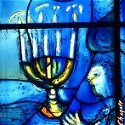
[ The following is related to this week's Torah reading, parashat Tetzaveh... ]
02.02.22 (I Adar 1, 5782) From our Torah portion for this week (i.e., Tetzaveh) we read: "You shall command the people of Israel that they bring to you pure olive oil "crushed" for the light, that an eternal lamp (נר תמיד) may be set up to burn" (Exod. 27:20). The Hebrew word for "pure" olive oil is zakh (זך), which refers to the clearest oil derived from squeezing out (or crushing) the very first drop from the choicest olive. The purest of oil was obtained by a process of "crushing for the light" (כתית למאור), which symbolizes the Light of the World, the One Crushed for our iniquities, the "Man of Sorrows" (אישׁ מכאבות) who offered himself up for our healing and illumination (Isa. 53:1-5). Some things are seen only through the process of tribulation, breaking, and surrender. When we kindle this lamp, we are able to see the truth; we perceive how God's heart was crushed for the sake of our salvation...
Hebrew Lesson:
Isaiah 53:5 Hebrew reading:
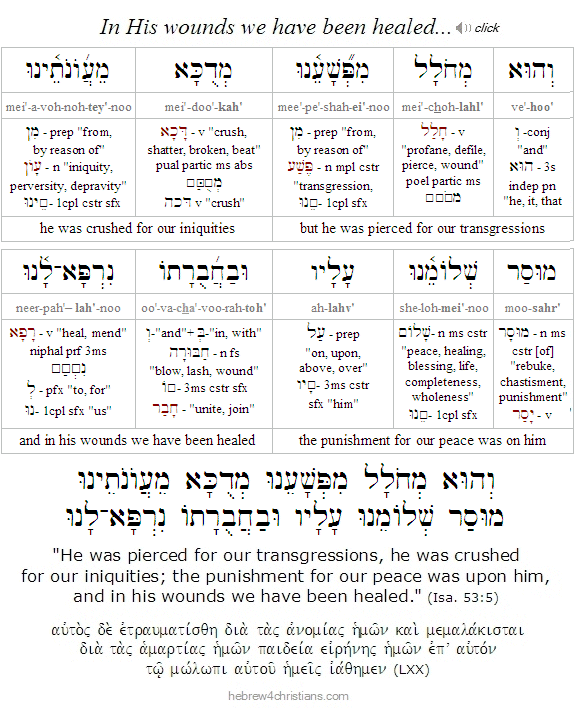 |
The Light of the Servant...

[ The following is related to this week's Torah reading, parashat Terumah... ]
02.02.22 (I Adar 1, 5782) One of the main components of the Mishkan (i.e., Tabernacle) was the Menorah (מְנוֹרָה), a beautifully designed lampstand that illuminated the Holy Place. All its intricate parts (i.e., its seven branches with seven lamps, nine flower blooms, eleven fruits, and twenty two cups) were formed from a single piece of pure gold (זָהָב טָהוֹר) that was "beaten" or "hammered" into shape (Exod. 25:36). The gold color is symbolic of the divine substance (gold has a hint of the color of blood combined with the pure white). The six lamps of the menorah faced the central lamp, called the shamash or "servant," so called because it bore the flame from which the other lamps were kindled.
 |
The seven lamps of the menorah were lit daily, "from evening until morning," starting from the central lamp (i.e, the shamash) and then moving right to left (Exod. 27:21). According to the Talmud (Shabbat 22b), while all the lamps received the same amount of olive oil, the "westernmost" lamp (according to Rashi, the center lamp, due to its orientation) miraculously never ran out of oil, even though it was kindled first in the sequence. When Aaron would rekindle the lamps every evening, he saw the shamash still burning, so he simply refilled it with oil and trimmed its wick. This miracle is also said to have occurred during the Temple period, though it abruptly ended about 40 years before the destruction of the Second Temple (c. 30 AD), after the death of Yeshua the Messiah, the true Servant and Branch of the LORD. As it is attested in the Talmud: "Our Rabbis taught: During the last forty years before the destruction of the Temple the lot ['For the Lord'] did not come up in the right hand; nor did the crimson-colored strap become white; nor did the westernmost light shine" (Yoma 39a).
The Scriptures declare that God is light, and Yeshua is the true Light of God (1 John 1:5; John 1:9). The light from the menorah reveals spiritual light. It was not seen from the outside of the Tabernacle, but only while inside the holy chamber, before the holy place of sacrificial atonement. The light itself came from the burning of pure and beaten olive oil - a symbol of anointing and the Holy Spirit (רוּחַ הַקּדֶשׁ). It enabled service to God to be performed, though it was not a light to be used for profane purposes. Notice that the six lamps faced the central lamp -- a picture of Yeshua, the Light of the World whose arms and legs were "hammered" for our sins.... He is the suffering servant (shamash) who lightens everyone in the world; He is the center, the supporting trunk for the other branches (John 15:5).
Hebrew Lesson:
Psalm 36:9 Hebrew reading:
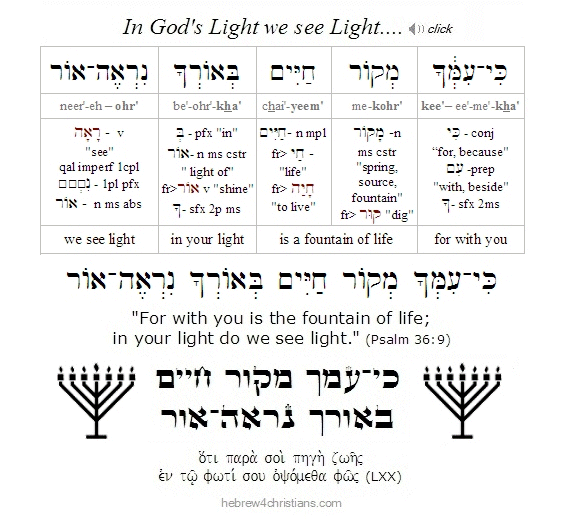 |
For more on this fascinating subject, see "A Closer Look at the Menorah."
Drawn into His love...
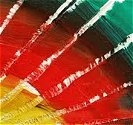
02.02.22 (I Adar 1, 5782) Where it is written, "The LORD appeared to me from far away: 'I have loved you with an everlasting love (אַהֲבַת עוֹלָם); therefore with love (חֶסֶד) have I drawn you'" (Jer. 31:3), note that the word translated "I have drawn you" (i.e., מְשַׁכְתִּיךְ) comes from mashakh (מָשַׁךְ), meaning to "seize" or "drag away" (the ancient Greek translation used the verb helko (ἕλκω) to express the same idea). As Yeshua said, "No one is able to come to me unless he is "dragged away" (ἑλκύσῃ, same word) by the Father" (John 6:44). God's chesed seizes us, takes us captive, and leads us to the Savior... Amen, and may the love of the LORD indeed be upon us, even as we put our hope in Him (Psalm 32:22).
Hebrew Lesson:
Jeremiah 31:3b Hebrew reading:
The Beauty of the LORD....

02.01.22 (Shevat 30, 5782) The nature of beauty has been an enduring mystery to artists and philosophers over the millennia, and various attempts have been made to define it. For example, some have defined beauty as an order, arrangement, and harmony of some kind (understood either as objective qualities inherent in something beautiful, or as a subjective sentiment of a person experiencing something that is esteemed as beautiful, and most often as a combination of both). In other words, something is regarded as beautiful because it possesses a certain arrangement of qualities that evoke pleasure or satisfaction in the mind or heart of a person.
The Scriptures teach us, however, that beauty is part of the very composition of things; the design and form of whatever exists, and that the revelation of beauty attests to the glory of God. Beauty is not simply "in the mind of the beholder," but is objectively real, as part of the very structure of reality. Consider, for example, the flower that blooms, the bird that sings, the star that shines, and the sunset that suffuses the evening skies. "The heavens declare the glory of God, and the firmament proclaims his handiwork; day to day pours out speech, and night to night reveals knowledge" (Psalm 19:1-2).
The beauty of the natural world is grounded in mind of God, since God actively created and designed creation for his purposes and pleasure (see Gen. 1:1, 31; Rev. 4:11). The creation bears witness to the brilliance of the Creator, and the imprint of God's handiwork is evident in the concinnity, order, and marvels of the natural world itself. This is particularly evident in the case of man, who is endowed with a conscience, or an intuitive "moral compass" that discerns the demands of justice and understands right and wrong. The conscience serves as an inner witness that speaks peace, harmony, and goodness when the moral law is observed, and unhappiness, disorder, and evil when it is disregarded or suppressed. As I've mentioned before, the ancient Greek mindset regarded what is beautiful as what is good, whereas the Hebrew mindset regarded what is good as what is beautiful. The difference is one of orientation. Doing our duty before God, obeying "the moral law within," is what is truly beautiful, not merely appreciating symmetry, order, harmony, and so on. Beauty is a type of the good, in other words, and justice expresses the truth of the good in relation to oneself and others. Beauty is also a type of truth, since what is truly beautiful expresses and reveals truth, whereas what is not truly beautiful expresses what is false. The spirit of man attests to the reality of the Creator and realizes its ontological indebtedness to God (Rom. 1:20).
Theologically, the "beauty of the LORD" (נעם־יהוה) can be understood as the effulgence of God's manifold perfections, everything about his heart and character that evokes ecstatic wonder, solemn awe, and irresistible attraction in his conscious creatures. It is the brightness and loveliness of God, the "charm of his unsurpassed excellence," his perfect justice and infinite compassion for his creation. The LORD is "the Rock, his work is perfect, for all his ways are justice. A God of faithfulness and without iniquity, just and upright is he" (Deut. 32:4). The beauty of the LORD is likened to the purity of Divine Light, the radiance and splendor that is incomprehensibly mysterious and good. The New Testament says "For God, who said "Let light shine out of darkness," is the one who shined in our hearts to give us the light of the glorious knowledge of God in the face of the Messiah" (2 Cor. 4:6). Yeshua is the Divine Light; the Radiance and Beauty of God manifest in the flesh (1 Tim. 3:16). "He is the radiance of the glory of God (הוּא זהַר כְּבוֹדוֹ) and the exact imprint of his nature, who upholds the universe by the word of his power" (נוֹשֵׂא כל בִּדְבַר גְּבוּרָתוֹ; Heb. 1:3). "All things were made by him; and without him was not any thing made that was made" (John 1:3).
So how do we wake up to the beauty of the LORD? How do we come to "see the invisible blessing" that pervades all things? How may we encounter the truth that "the whole world is filled with the irrepressible glory of the LORD" (Isa. 6:3)?
Frederick Buechner once described a "holy hush" that came over a boisterous crowd of people when they first encountered the giant redwood trees at Redwood National Park. As the people began to take in their surroundings, everything seemed to change - the loud chatter faded; the light, the atmosphere, and especially the awe of being in the presence of these enormous and ancient trees (some of which had been standing since the time of Jesus), induced a sense of smallness and humility before the glory that surrounded them.
You may have experienced this sort of awe also, perhaps while observing the starry night sky, or while watching the sun set over the mountains or upon the rim of the Grand Canyon, or when witnessing the birth of a baby, or when listening to music that touched your heart and brought tears to your eyes, and so on. Such experiences are sometimes called "self-transcendent," since they move us outside of our ordinary consciousness in an encounter with something great, breathtaking, wonderful, and sublime...
Encountering the glory of the LORD evokes conflicting emotions within the heart, a powerful combination of fear and attraction that is sometimes called the "numinous." The LORD our God is beautiful beyond anything we can imagine, yet were we to directly encounter him we would be so overwhelmed that we would "fall to the ground as one dead" (Rev. 1:17); nonetheless he puts his hand upon us and says, "Don't be afraid; for I am with you." By his gracious touch, then, we are able to look upon the radiance of his presence, to receive the vision of his majesty and transcendent beauty and loveliness. And the amazing thing is that this is what he wants; this is the very desire of his heart, after all, the prayer to the Father that we should behold his glory (see John 17:22-24). And this, I believe, is part of what is meant when it is said that we are made temples of the Holy Spirit (1 Cor. 3:16). " You yourselves are like living stones being built up as a spiritual house, to be a holy priesthood, to offer spiritual sacrifices acceptable to God through Yeshua the Messiah (1 Pet. 2:5).
This topic relates to our Torah reading for this week, parashat Terumah. As we are drawn by God's grace to love the Lord and to understand how truly beautiful and wonderful and kind he is to us, we will be willing to worship him and celebrate his loving glory. To be alive before God is to be alive to his beauty. Your heart will flutter in joyful excitement to sing: "Give unto the LORD the glory due unto his name; bow down to the LORD in the beauty of holiness" (Psalm 29:2). We sanctify the LORD God within us by affirming his superlative beauty, his infinite goodness, the greatness of his power, the perfections of his justice and truth, his unfathomable kindness, and his unsurpassing and everlasting love. The recognition of the beauty of the LORD is the awareness of his holiness, wherein our heart will esteem his sacred glory as our most precious and extraordinary gift. The beauty of the LORD our God is the heart of love and life and wisdom and truth, the Supreme Being of which no greater can be conceived, for ever and ever. Yehi Shem Adonai Mevorakh. Amen.
Hebrew Lesson
Psalm 90:17 Hebrew reading:
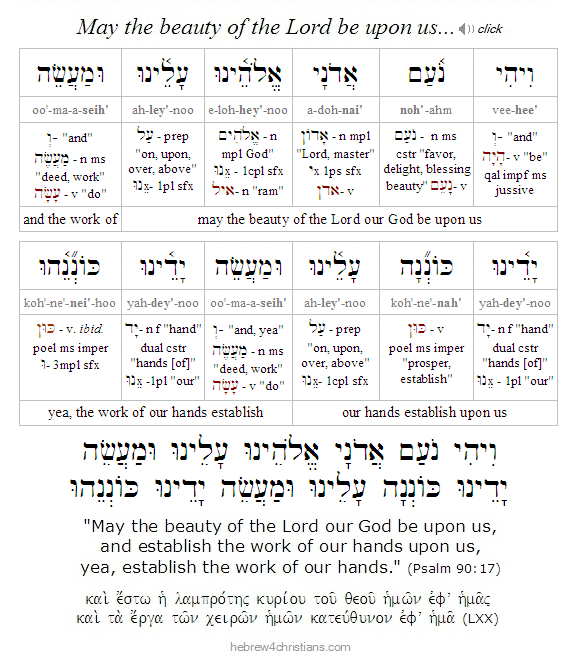 |
|


























































